Are you a real history buff and are you looking for the best history museums to visit in Rhineland-Palatinate? These are the ones:
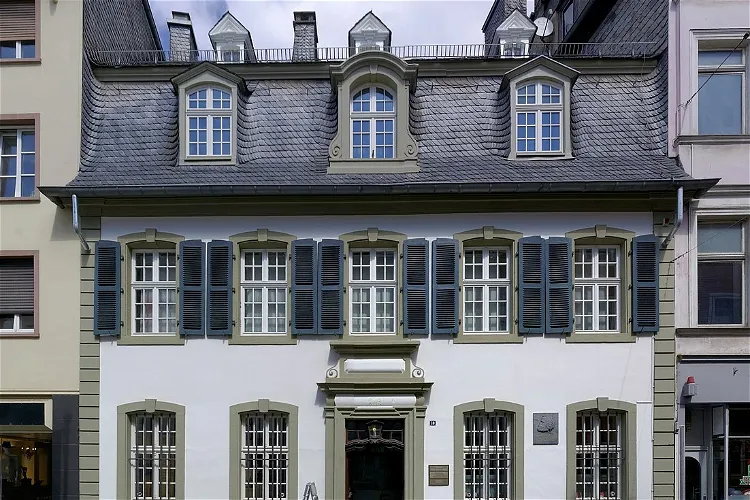
Karl Marx House
TrierThe Karl Marx House museum, located in Trier, Germany, is a biographical and writer's house museum. It is the birthplace of Karl Marx, the father of Marxism, who was born in the house in 1818. The museum is dedicated to the life and writings of Marx, as well as the history of communism.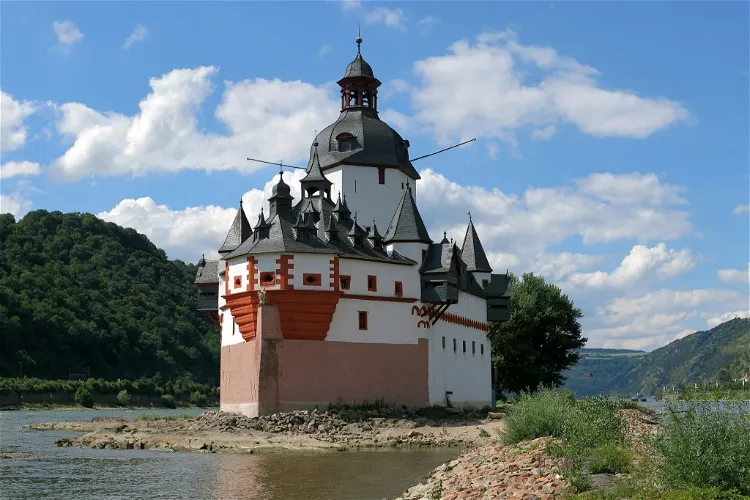
Pfalzgrafenstein Castle
KaubPfalzgrafenstein Castle, also known as 'the Pfalz', is located on Falkenau Island in the River Rhine near Kaub, Germany. This former toll castle is renowned for its unique and picturesque setting. The castle's keep, a pentagonal tower with its point upstream, was built between 1326 and 1327 by King Ludwig the Bavarian. The castle is accessible to the public and can be reached via a ferry service from nearby Kaub, depending on river conditions.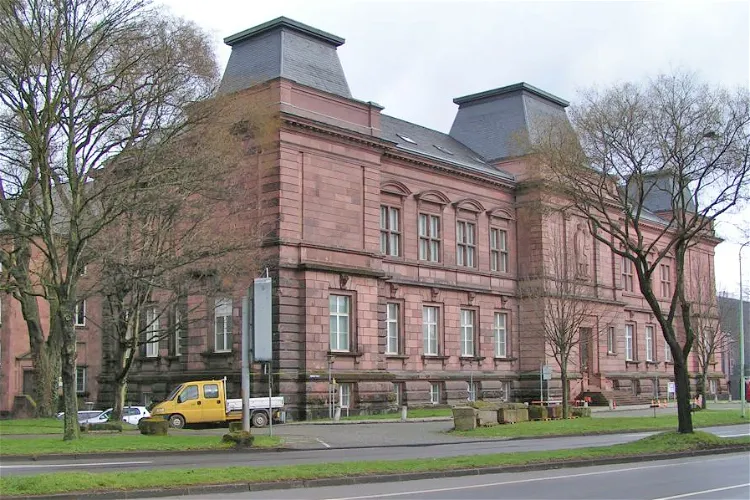
Rheinisches Landesmuseum Trier
TrierThe Rheinisches Landesmuseum Trier is a significant archaeological museum in Germany. Its collections span various periods, from prehistory to the Baroque era, encompassing the Roman occupation and the Middle Ages. This broad range of collections offers visitors a comprehensive insight into the historical development of the region.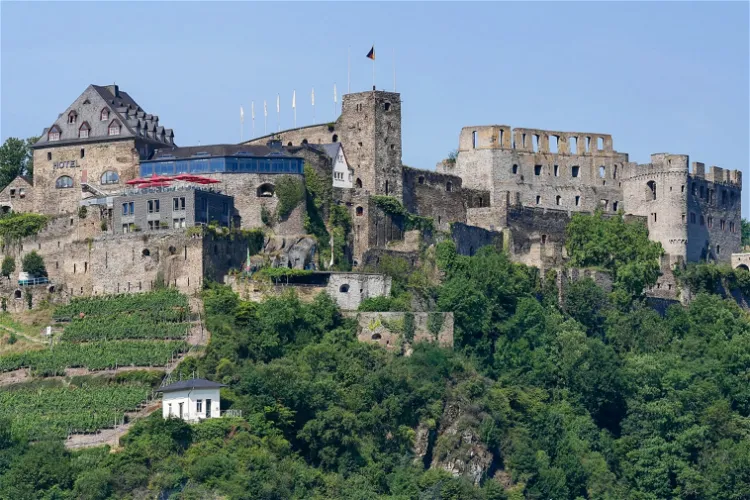
Rheinfels Castle
Sankt GoarRheinfels Castle, located in Sankt Goar, Germany, is a historic castle ruin that dates back to 1245. It was initiated by Count Diether V of Katzenelnbogen and stands majestically above the left bank of the Rhine. This castle offers a glimpse into the rich history of the region and is a significant landmark.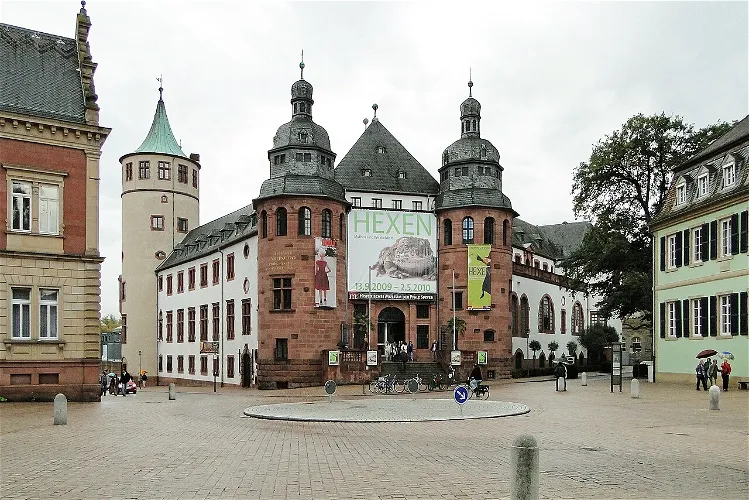
Historical Museum of the Palatinate
SpeyerThe Historical Museum of the Palatinate is conveniently located in the city of Speyer, just across the square from the iconic Speyer Cathedral. This makes it an easy addition to any itinerary that includes a visit to the cathedral. The museum's location in the heart of the city also means it is easily accessible by public transportation or on foot.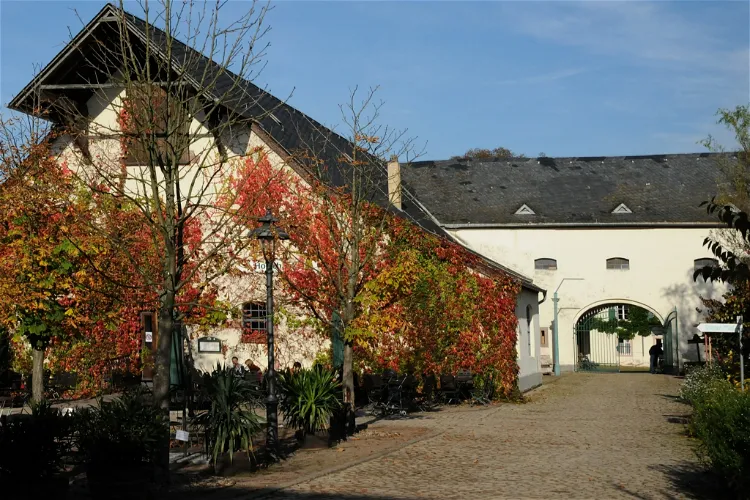
Roscheider Hof Open Air Museum
KonzThe Roscheider Hof Folklore and Open Air Museum, established in 1976, is situated in the city of Konz, in the Rheinland-Pfalz region of Germany. This museum is one of the largest German folklore museums, with an exhibition area of 4000 square meters and a total land area of 20 hectares.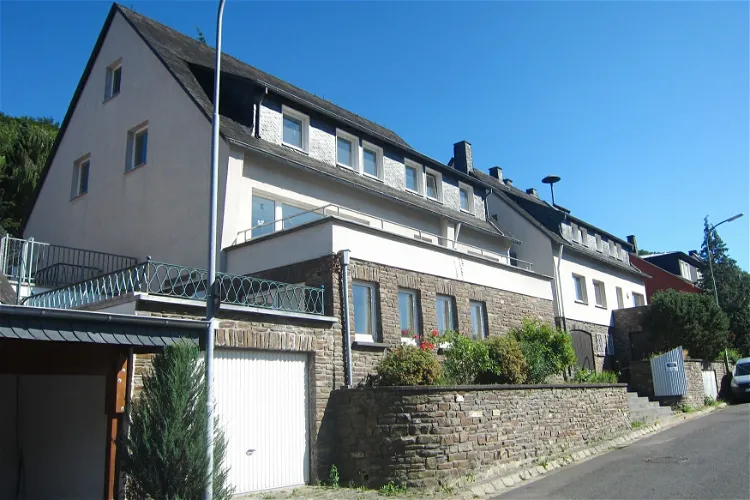
Bundesbank bunker
CochemThe Bundesbank Bunker in Cochem, located in Rhineland-Palatinate, was a significant historical site during the Cold War. It was used by the Deutsche Bundesbank for the storage of emergency currency. This bunker was part of the security measures taken by the Federal Republic of Germany during the Cold War, and it stored up to 15 billion Marks from 1964 to 1988.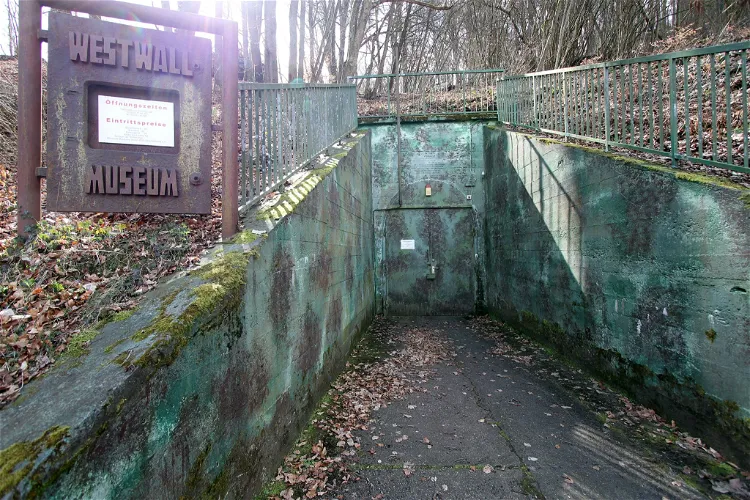
Siegfried Line Museum Pirmasens
PirmasensThe Siegfried Line Museum at Pirmasens is located in the German state of Rhineland-Palatinate. It is housed in a former subterranean fortification on the edge of the village of Niedersimten in the southwest Palatinate region. The museum is a significant historical site that offers a unique insight into the region's past.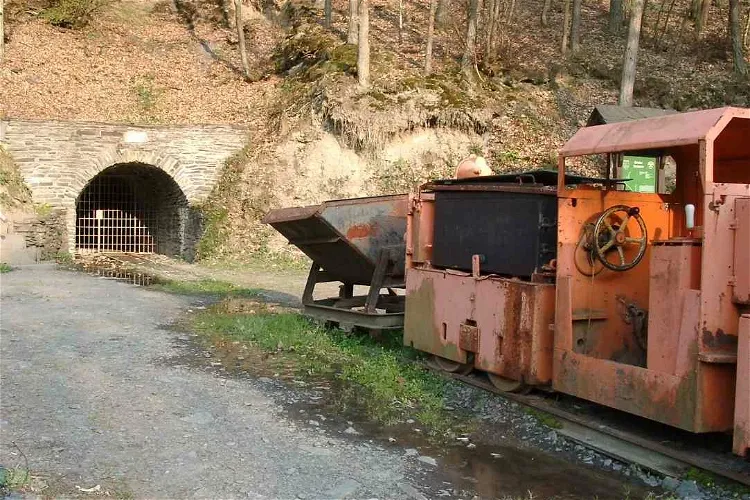
Fell Exhibition Slate Mine
FellThe Fell Exhibition Slate Mine, also referred to as the Barbara-Hoffnung Exhibition Mine, is a historical site located in Germany. It is situated approximately 20 kilometers east of Trier and about 60 kilometers east of Luxembourg City, in close proximity to the villages of Fell and Thomm. This former slate mine offers a unique insight into the region's mining history and is easily accessible from major cities.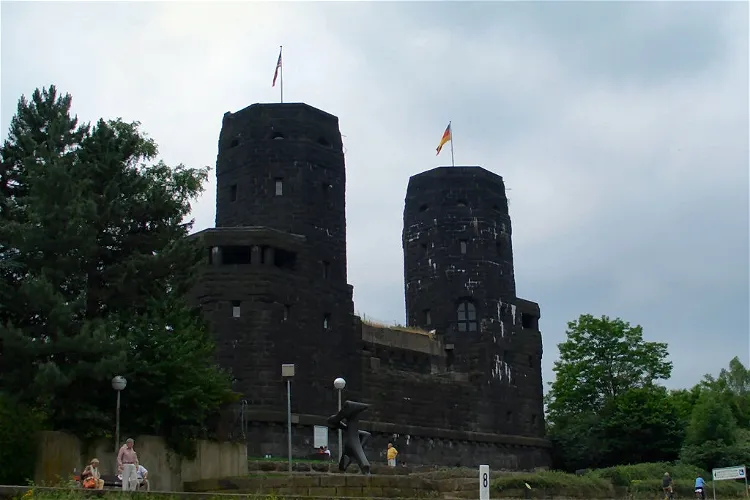
Friedensmuseum Brücke von Remagen
RemagenThe Friedensmuseum Brücke von Remagen is a museum situated on the left bank of the former Ludendorff Bridge in Remagen. This location is significant as it was a strategic point during World War II. The museum offers a unique perspective on the history of the bridge and the events that took place there.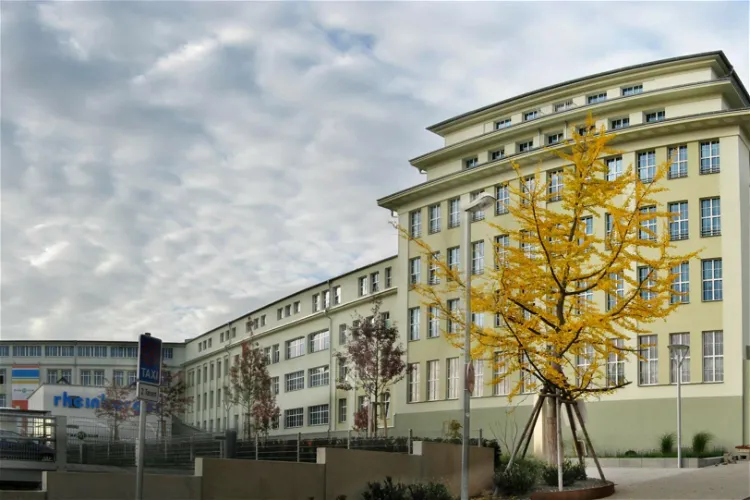
Dynamikum
PirmasensThe Dynamikum is a technology museum situated in Pirmasens, Rhineland-Palatinate. It was established on the grounds of the former Rheinberger shoe factory and opened its doors to the public on April 29, 2008. This location holds historical significance as it was once the largest shoe factory in Germany, which has now been transformed into a museum.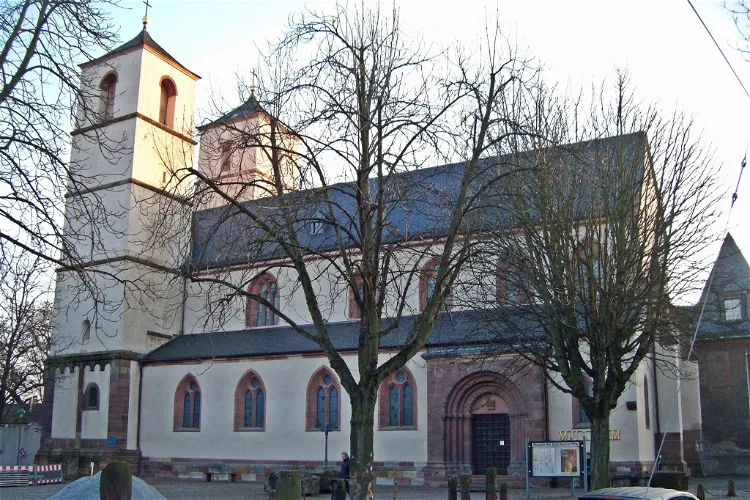
Worms City Museum
WormsThe Worms City Museum is housed in the building of the former Andreasstift. This historic building complex, which includes a courtyard, is a protected monument. The museum is managed by the city of Worms in Rhineland-Palatinate.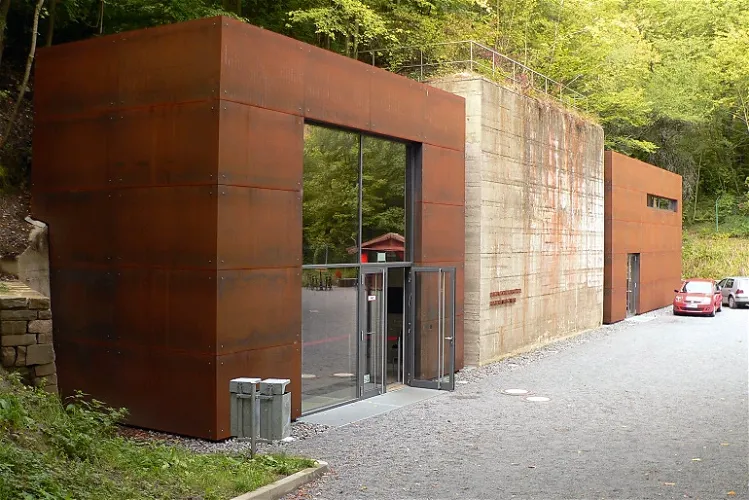
Government bunker
Bad Neuenahr-AhrweilerThe Government Bunker Regierungsbunker in Germany, also known as the Emergency Seat of the Federal Constitutional Organs, was a significant Cold War-era construction. It was designed to house the German government, parliament, and enough federal personnel to maintain the government's functionality in the event of war or severe crisis. This massive underground complex is a testament to the tensions and fears of the Cold War period.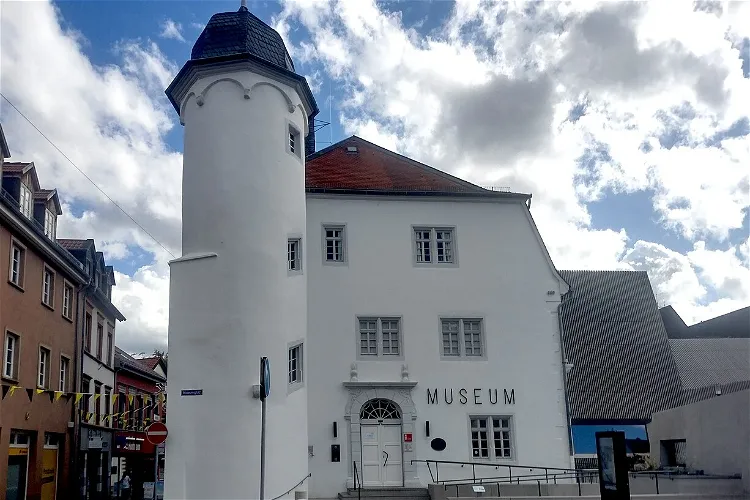
Museum Alzey
AlzeyThe Museum of the City of Alzey, a local history museum, was established in 1906 by the Antiquities Association for Alzey and its surroundings. The museum's mission is to explore the history and natural conditions of Alzey and its surroundings, collect and preserve antiquities and natural objects, and exhibit them.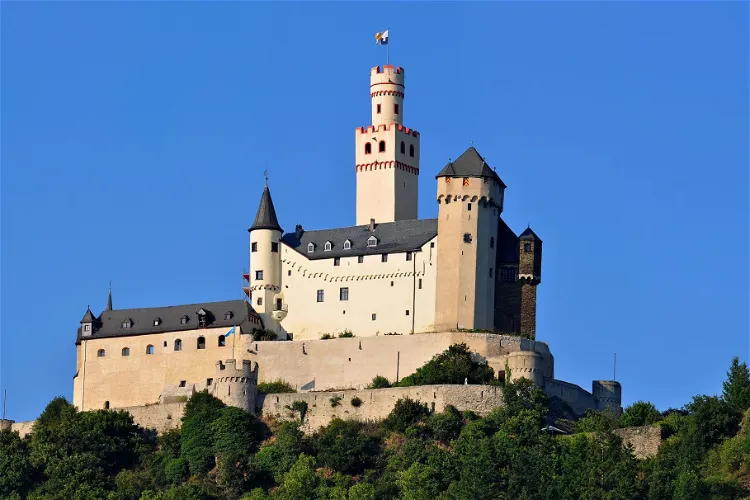
Marksburg
BraubachThe Marksburg is a significant historical site located above the town of Braubach in Rhineland-Palatinate, Germany. It is recognized as one of the main attractions of the Rhine Gorge, a UNESCO World Heritage Site. This castle offers a unique glimpse into the past and is a testament to the rich history of the region.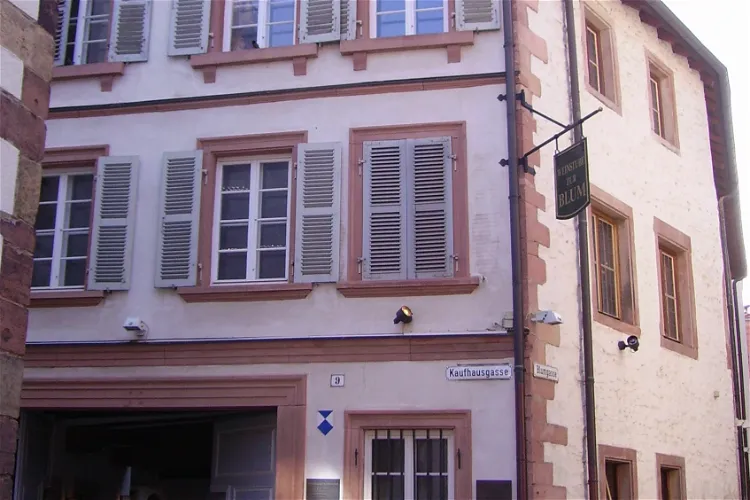
Frank-Loebsches Haus
Landau in der PfalzThe Frank-Loebsche Haus is a historic building located in Landau in der Pfalz. It is named after its former owners, the Jewish Frank-Loeb family. This three-story four-wing building with arcades has a rich history that dates back to between the 15th and 17th centuries. It is a significant symbol of Jewish culture in Landau society before the era of National Socialism.- 17
Historische Senfmühle Cochem
Cochem 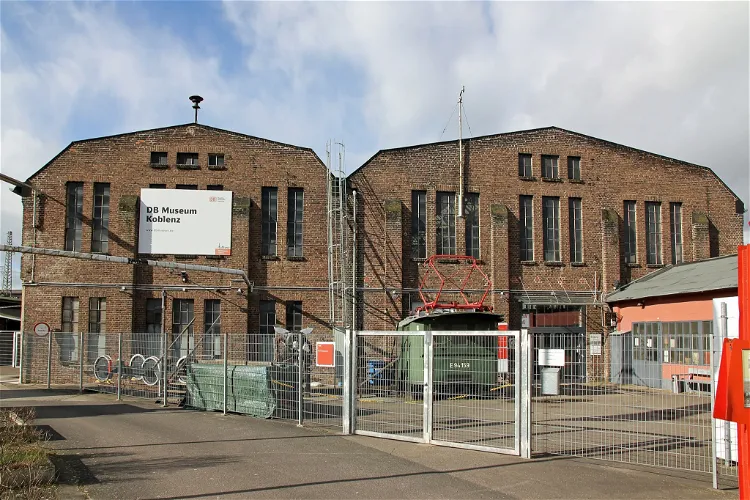
DB Museum Koblenz
KoblenzThe DB Museum in Koblenz is located in the district of Lützel, in a building that was once a goods wagon repair shop. This historical setting adds a unique charm to the museum, providing a tangible link to the past of railway transportation.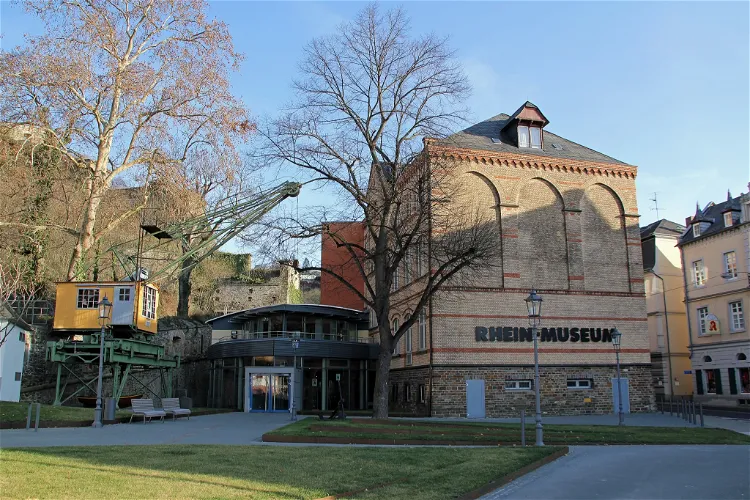
Rhein-Museum Koblenz
KoblenzThe Rhein-Museum Koblenz is a cultural-historical museum located in Koblenz. It provides a comprehensive view of life on the Rhine, covering various aspects such as shipping, ecology, hydrology, Rhine romanticism, tourism, economy, and history. This museum offers a unique opportunity to delve into the rich cultural landscape of the Rhine.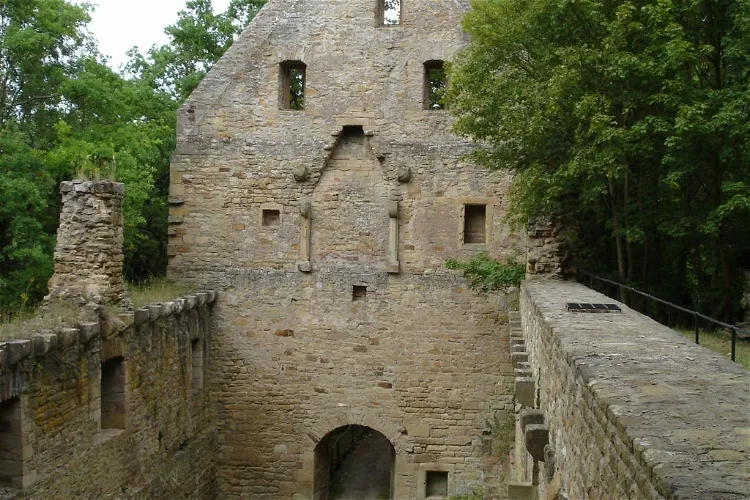
Disibodenberg
Odernheim am GlanDisibodenberg is a historical monastery ruin located near Staudernheim in Rhineland-Palatinate, Germany. The monastery was founded by Saint Disibod, a missionary from Ireland. The site is rich in history and offers a unique glimpse into the past. Visitors can explore the ruins and learn about the monastery's history and the life of Saint Disibod.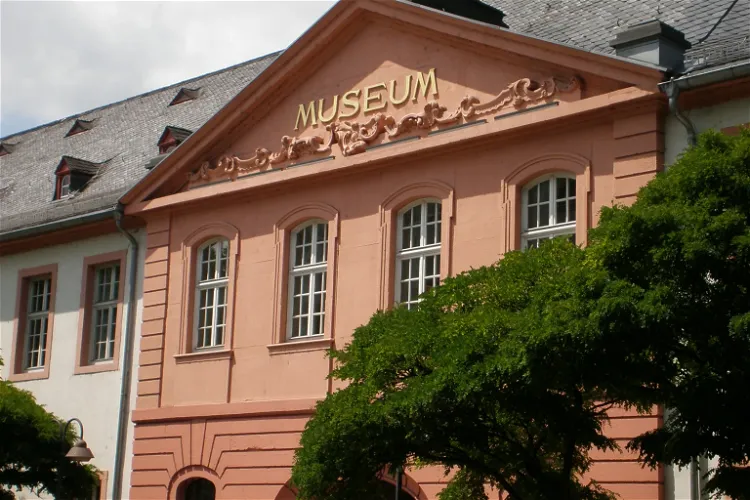
Mainz State Museum
MainzThe Mainz State Museum, also known as Landesmuseum Mainz, is a significant institution in Mainz, Germany, dedicated to the preservation and exhibition of art and history. The museum's collections span a wide range of periods and cultures, offering visitors a comprehensive insight into the rich history and artistic heritage of the region.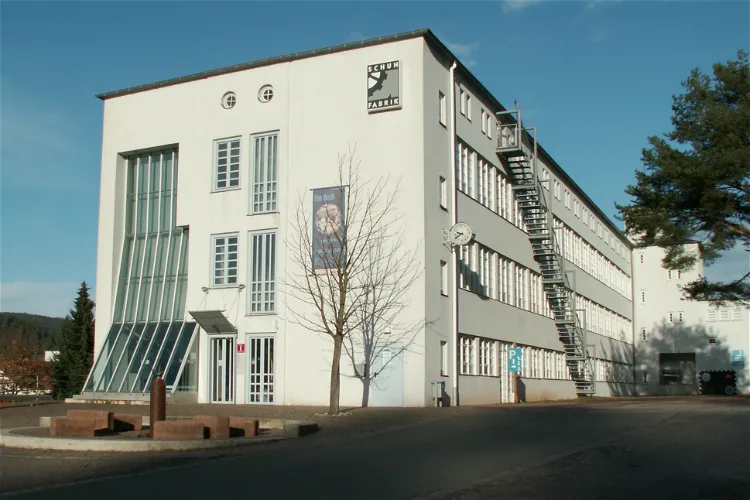
German Shoe Museum
HauensteinThe German Shoe Museum, situated in Hauenstein, Palatinate, is a unique institution that provides a comprehensive overview of the local shoe industry's evolution. The museum is housed in a former shoe factory, adding an authentic touch to the experience. Visitors can explore the technical aspects of shoe manufacturing and delve into the social and everyday history of shoes.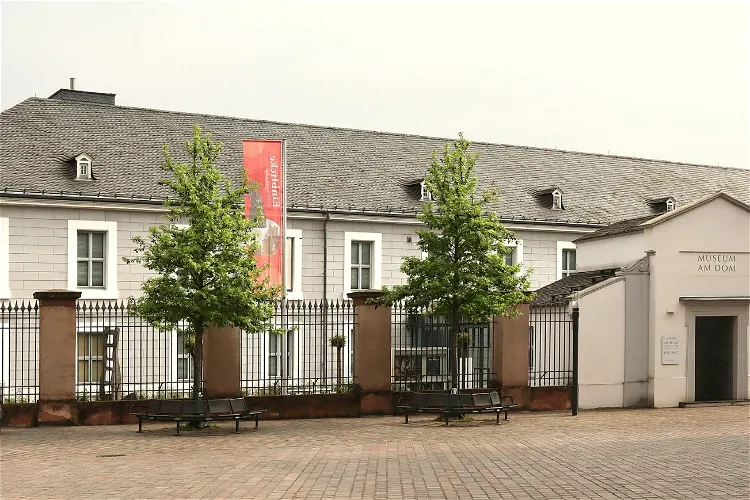
Trier Cathedral Museum
TrierIn addition to its main focus, the Museum am Dom Trier also conducts research on the late antique predecessor buildings of the Trier Cathedral, which is the oldest German bishop's church. This research provides valuable insights into the architectural evolution of the cathedral and its historical significance.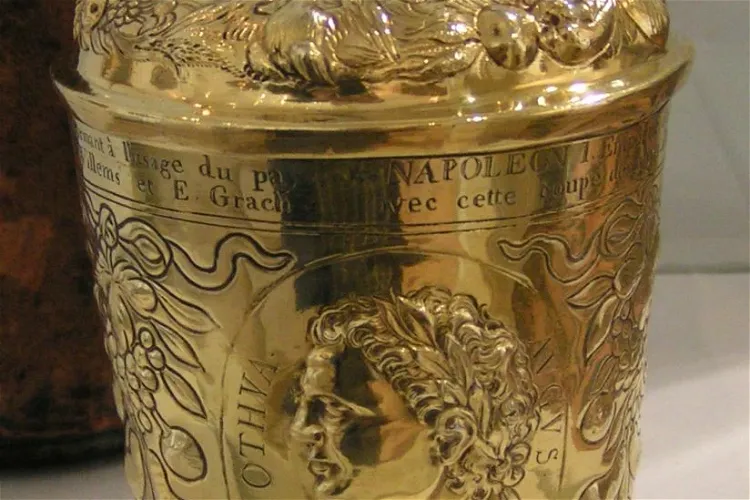
City Museum Simeonstift Trier
TrierThe City Museum Simeonstift Trier, previously known as the 'Municipal Museum Trier', is situated in the buildings of the former Simeonstift. It is located around the fountain courtyard, directly adjacent to the Porta Nigra, a significant Roman city gate. The museum's location adds to its historical charm and provides a unique setting for the exploration of Trier's rich history.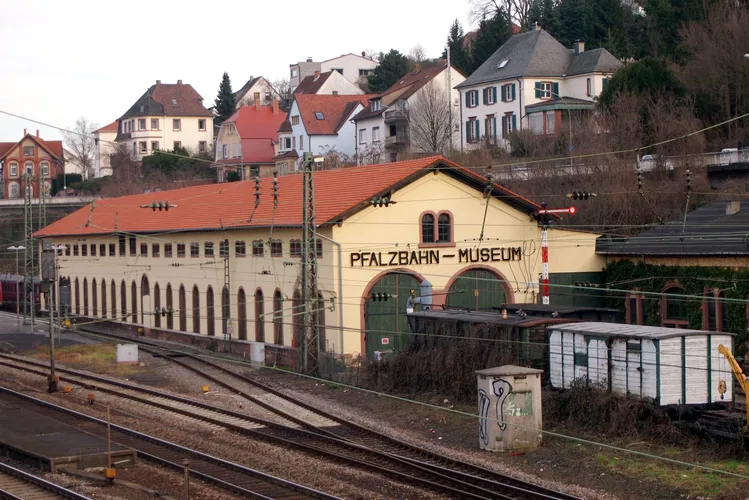
Neustadt/Weinstrasse Railway Museum
Neustadt an der WeinstraßeThe Neustadt/Weinstrasse Railway Museum, also known as Eisenbahnmuseum Neustadt/Weinstraße, is one of two railway museums managed by the German Railway History Company, also known as Deutsche Gesellschaft für Eisenbahngeschichte or DGEG. This museum is a significant part of Germany's railway history and offers a unique insight into the country's railway heritage.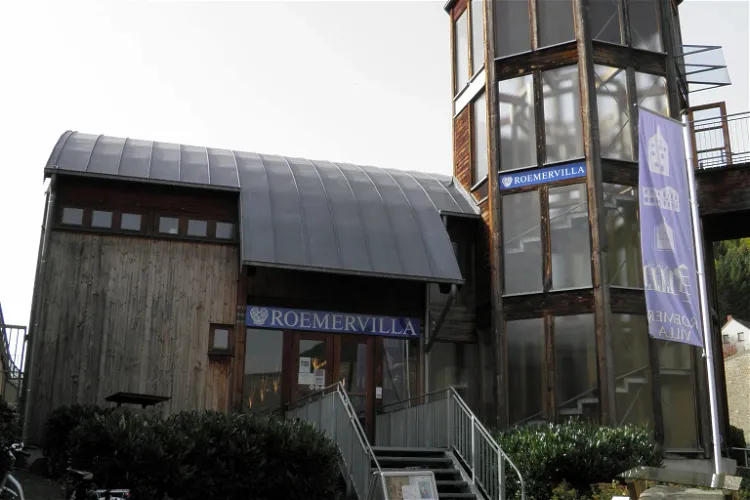
Museum Römervilla
Bad Neuenahr-AhrweilerThe Museum Römervilla, located near Bad Neuenahr Ahrweiler in Rhineland-Palatinate, is an archaeological site that houses the remains of a mid-1st century AD Roman villa. This site offers a unique opportunity to explore the history and architecture of the Roman era, providing a glimpse into the lifestyle of the Romans who once lived there.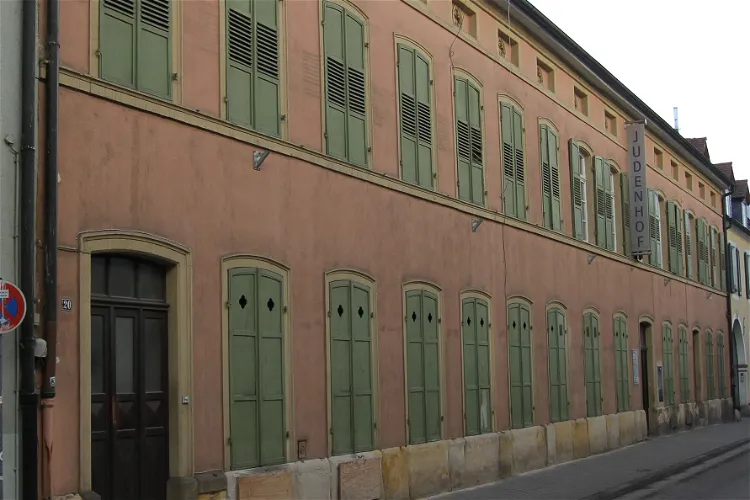
Museum SchPIRA
SpeyerThe Museum SchPIRA is situated in the city of Speyer, a location in the Rhineland-Palatinate region of Germany. This museum offers a unique insight into the Jewish history of the region, making it a significant destination for those interested in cultural and historical exploration.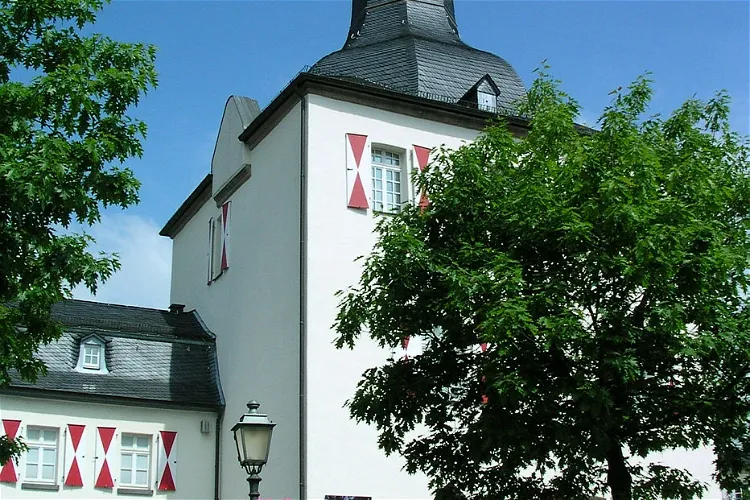
Weißer Turm Ahrweiler
Bad Neuenahr-AhrweilerThe Weißer Turm, located in Ahrweiler, a district of Bad Neuenahr-Ahrweiler in the Ahrweiler district of Rhineland-Palatinate, is a former residential tower dating back to the second half of the 13th century. This historical building offers a glimpse into the architectural style and living conditions of the period.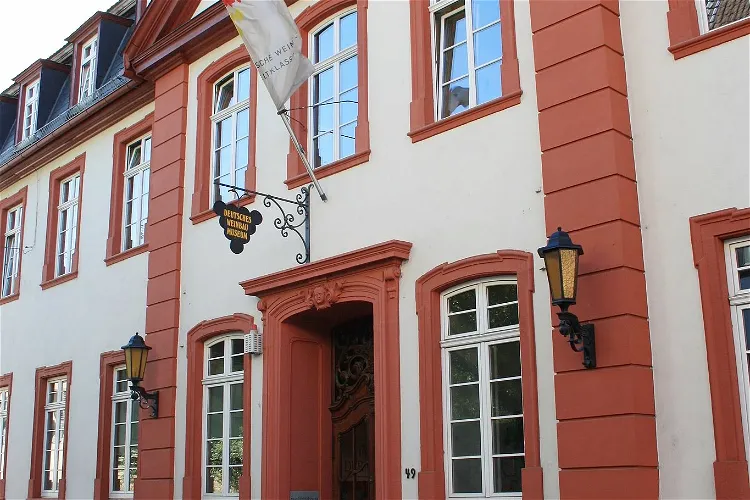
Deutsches Weinbaumuseum
OppenheimThe Deutsches Weinbaumuseum, located in Oppenheim, is a national German museum that offers a comprehensive view of the country's wine culture. It showcases exhibits from all 13 German quality wine-growing regions, providing a unique opportunity for visitors to explore the rich history and diversity of German viticulture in one place.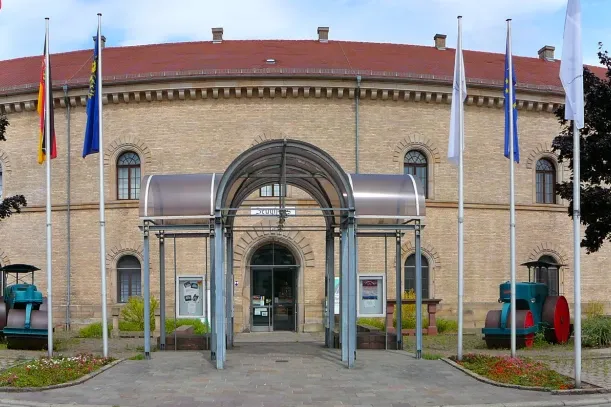
Deutsches Straßenmuseum
GermersheimThe Deutsches Straßenmuseum is situated in the Palatinate city of Germersheim. This location is in the heart of Germany, making it easily accessible for tourists from all over the country and beyond. The city itself is rich in history and culture, providing an excellent backdrop for the museum.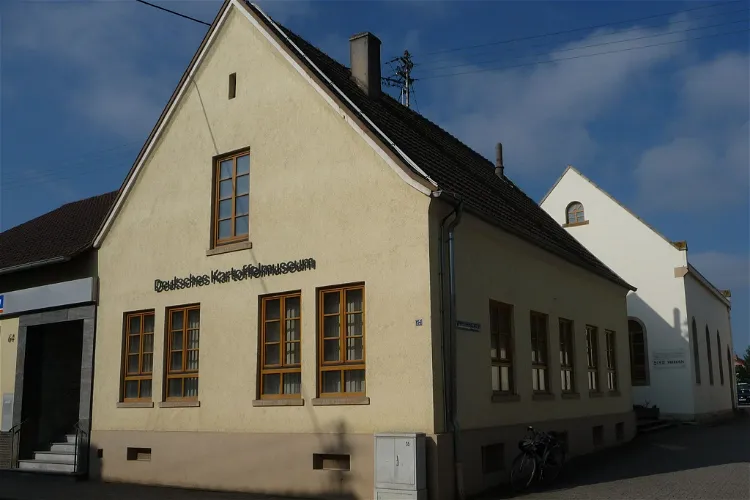
Deutsches Kartoffelmuseum
FußgönheimThe Deutsches Kartoffelmuseum in Fußgönheim is one of three potato museums in Germany. The other two are located in Munich and Stremlow. This museum offers a unique opportunity to learn about the history, cultivation, and distribution of potatoes, particularly in the Pfalz and Prussia regions.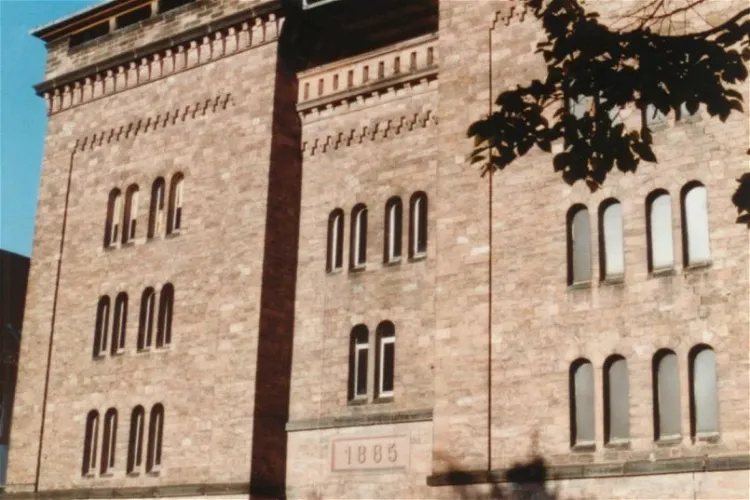
Mainzer Fastnachtsmuseum
MainzThe Mainzer Fastnachtsmuseum is a dedicated space that showcases the history of Mainzer Fastnacht, a traditional carnival in Mainz, dating back to 1837. The museum spans an area of approximately 350 square meters, providing ample space for visitors to explore and learn about the rich history of this local tradition.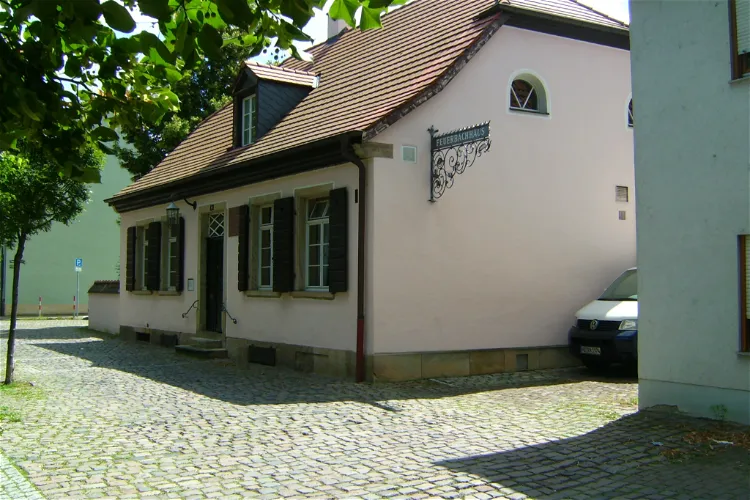
Feuerbachhaus
SpeyerThe Feuerbachhaus is a museum located at Allerheiligenstraße 9 in Speyer, dedicated to the Feuerbach family. This location is significant as it was the home of the archaeologist Joseph Anselm Feuerbach and his family for ten years. His son, the renowned painter Anselm Feuerbach, was born in this house.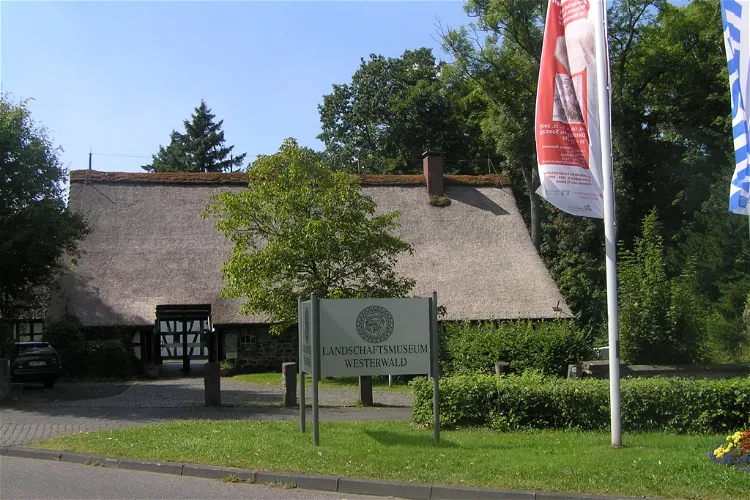
Landschaftsmuseum Westerwald
HachenburgThe Landschaftsmuseum Westerwald is a quaint open-air museum situated in the scenic town of Hachenburg in the Westerwaldkreis region. This museum offers a unique opportunity to explore the rich history and culture of the Westerwald area in an immersive outdoor setting.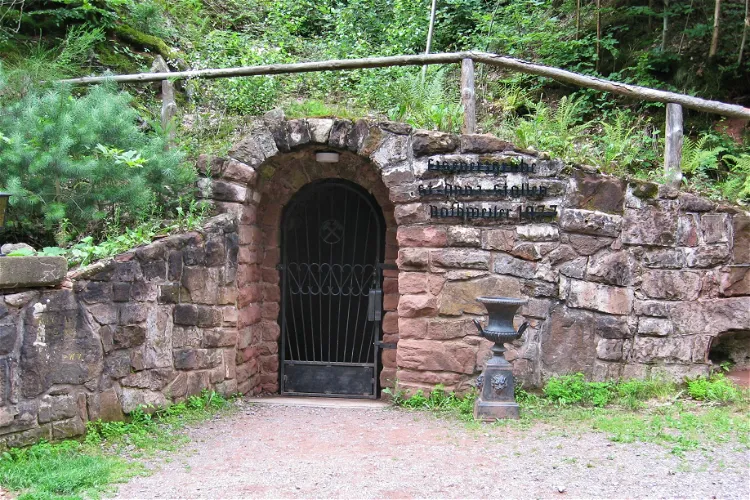
Besucherbergwerk St. Anna Stollen
NothweilerThe St. Anna Stollen is a show mine located in Nothweiler, Rheinland-Pfalz. This former iron ore mine is now a protected cultural monument. It offers a unique opportunity to explore the history of mining in the region and to learn about the geological processes that led to the formation of the iron ore deposits.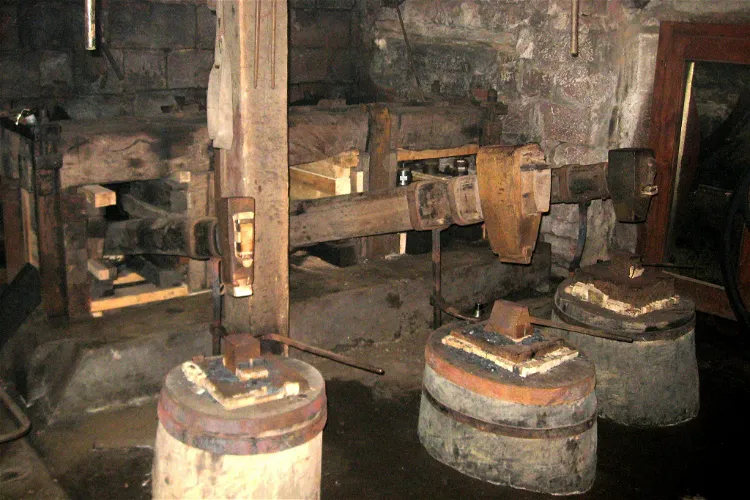
Wappenschmiede Elmstein
AppenthalThe Wappenschmiede Elmstein was in operation until 1975, with the last blacksmith being Heinrich Haag. Today, it stands as a cultural monument and a working museum. Visitors can experience the historical significance of the forge and gain insights into the life and work of a blacksmith in the past.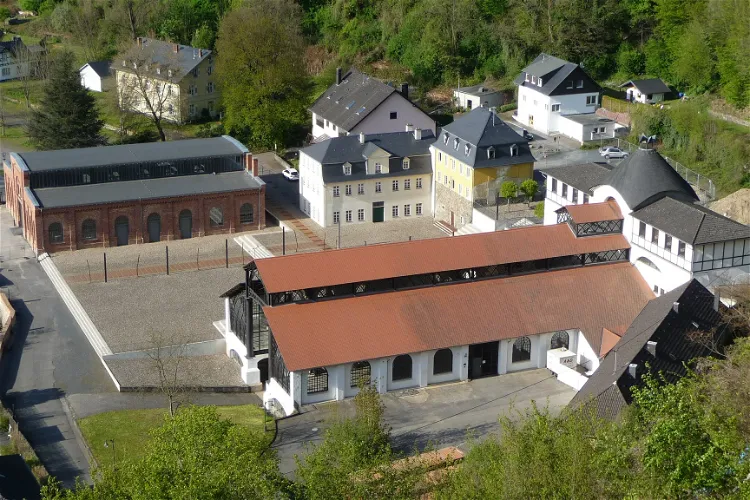
Denkmalareal Sayner Hütte
BendorfIn 2010, the Sayner Hütte was recognized as a Historic Landmark of Engineering in Germany. This prestigious recognition underscores the site's significant contribution to the field of engineering and its historical importance. Visitors to the Sayner Hütte can appreciate the engineering marvels of the past and the innovative techniques used in the ironworking industry.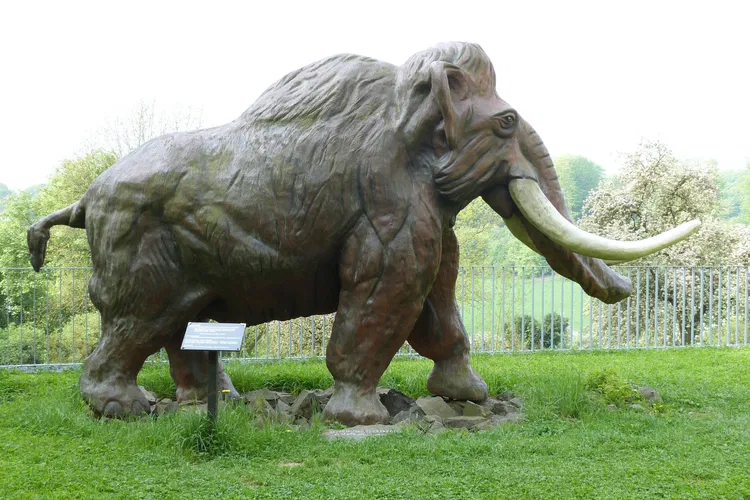
Monrepos (archaeology)
NeuwiedMonrepos is an archaeological research centre and a museum that focuses on human behavioural evolution. It is located at Schloss Monrepos in Neuwied. The museum is dedicated to studying the development of modern human behaviour during the Palaeolithic and Mesolithic periods. The findings from these studies are then shared with the public through the museum's exhibits.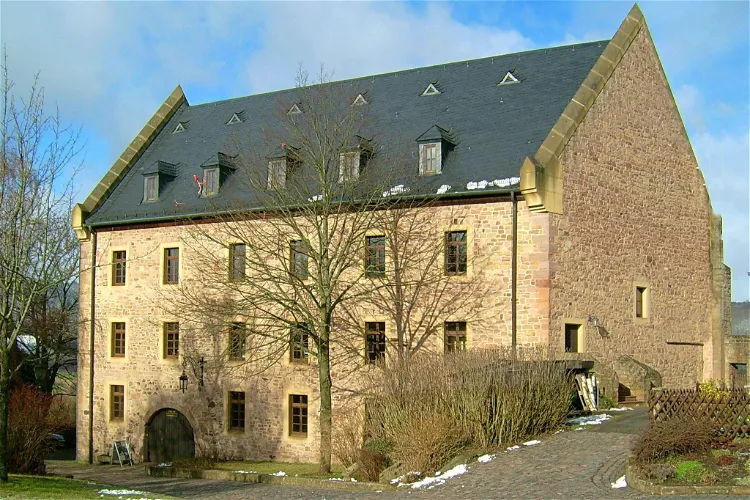
Palatine Musikantenland Museum
ThallichtenbergThe Palatine Musikantenland Museum is situated at the historic Lichtenberg Castle, near the town of Thallichtenberg in the county of Kusel. This location offers visitors not only a chance to explore the rich history of West Palatine wandering musicians but also to enjoy the scenic beauty of the surrounding area.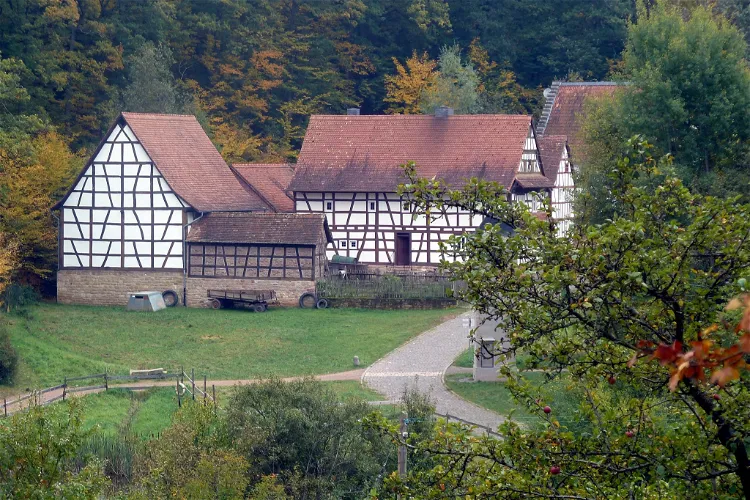
Rheinland-Pfälzisches Freilichtmuseum Bad Sobernheim
Bad SobernheimThe Rheinland-Pfälzisches Freilichtmuseum in Bad Sobernheim is a medium-sized open-air museum in Germany. It offers a unique opportunity to explore the history and culture of the region in an immersive and interactive environment. The museum is designed to provide a comprehensive understanding of the past, making it a great destination for history enthusiasts and families alike.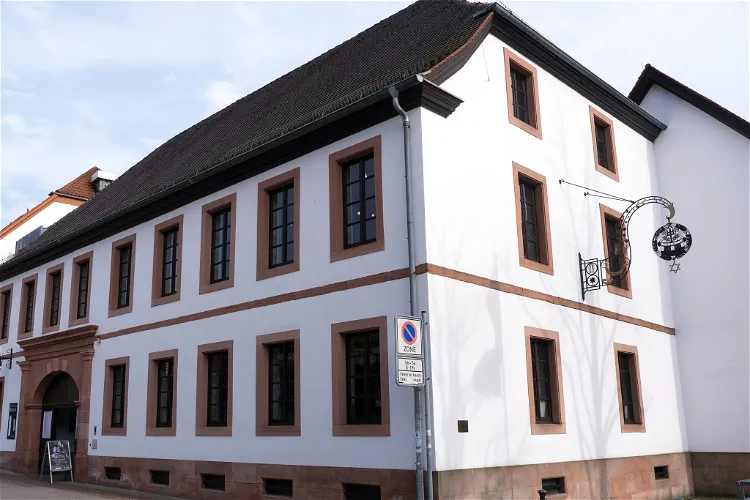
Theodor-Zink-Museum
KaiserslauternThe Theodor-Zink-Museum is a historical museum located in Kaiserslautern. It was founded in 1934 by Theodor Zink, a local historian and conservator. The museum is named in his honor and is a testament to his dedication to preserving the history and culture of the region.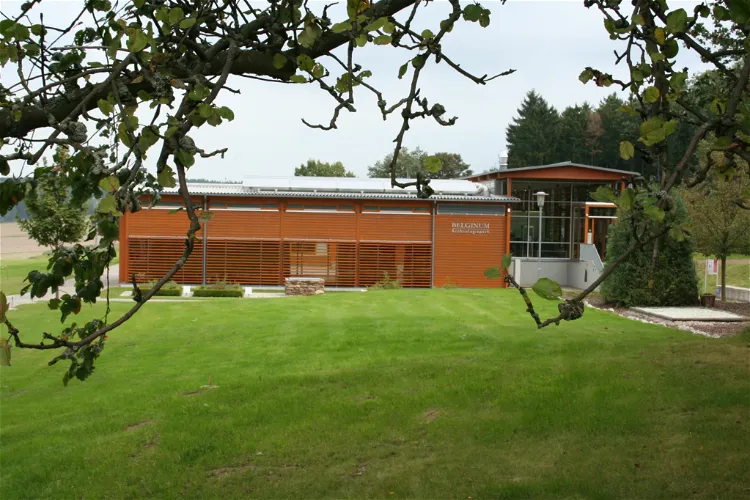
Archäologiepark Belginum
MorbachThe museum at the Archaeology Park Belginum offers a fascinating insight into the past. It showcases grave finds from several Iron Age cemeteries, providing a glimpse into the burial practices and beliefs of the time. The museum also presents the everyday life of the provincial Roman population in ancient Belginum, offering a vivid picture of life in the Roman era. Additionally, the museum explains the work of archaeologists, making it an educational experience for visitors of all ages.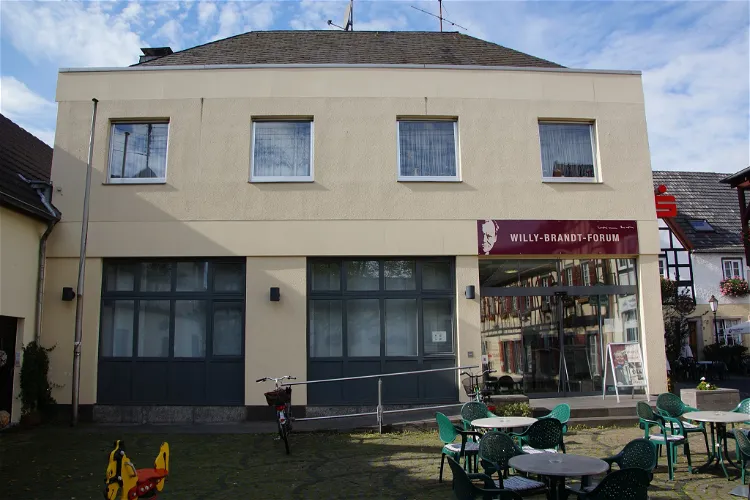
Willy-Brandt-Forum
UnkelThe Willy-Brandt-Forum in Unkel is a museum that pays tribute to the life and work of Willy Brandt, a former German SPD politician, Chancellor, and Nobel Peace Prize laureate. Brandt lived in Unkel from 1979 until his death in 1992. The museum provides a comprehensive overview of his political career and his personal life, making it a significant destination for those interested in German and European history.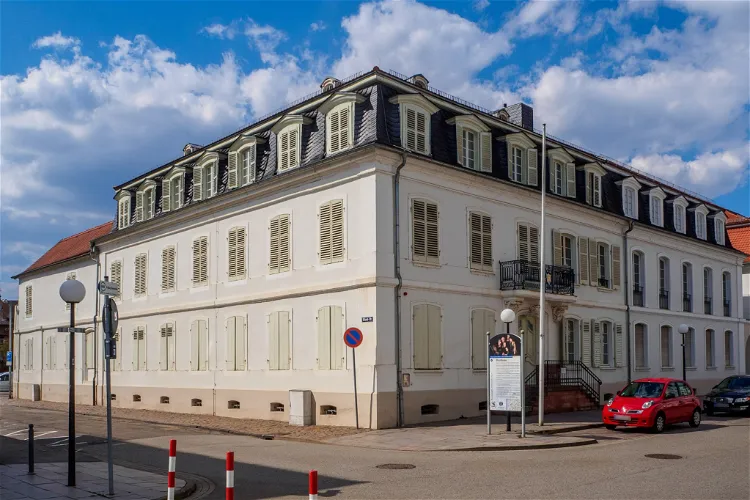
Zweibrücken City Museum
ZweibrückenThe Zweibrücken City Museum is a place where visitors can delve into the rich history of the city of Zweibrücken and the former Duchy of Palatinate-Zweibrücken. The museum's collections and exhibits provide a comprehensive overview of the city's past, from its early beginnings to the present day. It's an ideal destination for history enthusiasts and those interested in learning more about the region's cultural heritage.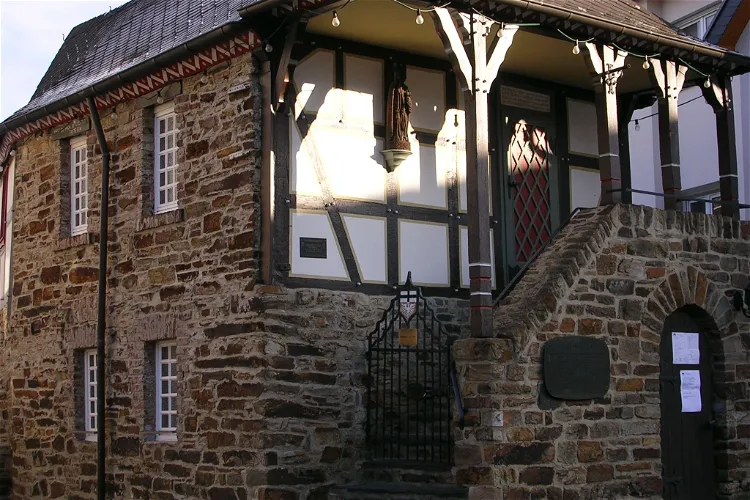
Weinmuseum Bachem
Bad Neuenahr-AhrweilerThe Weinmuseum Bachem is a small wine museum situated in a historic building at Königstraße 23 in Bachem, a district of the city Bad Neuenahr-Ahrweiler in Rhineland-Palatinate. Established in 1978, the museum offers a unique insight into the history and culture of wine production in the region.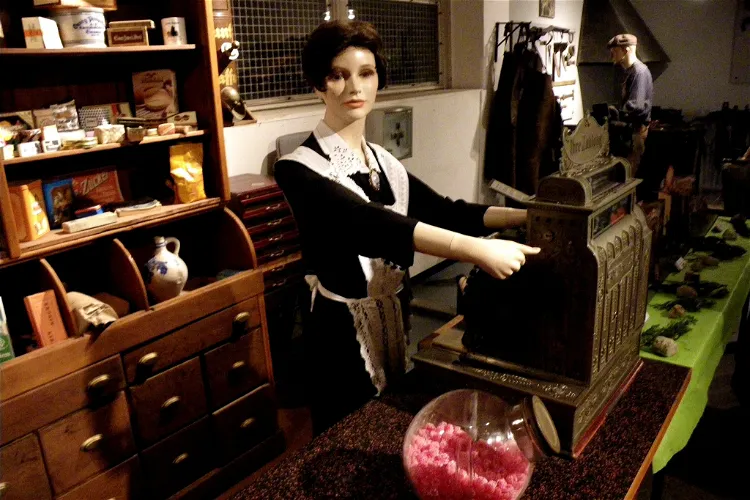
Museum der Stadt Kirchen Sieg
Kirchen (Sieg)The Heimatmuseum in Kirchen (Sieg) is a museum managed by the Kirchener Heimatverein e.V. The building that houses the museum was constructed in 1910, adding a historical charm to the place. This information might be of interest to tourists who appreciate architecture and history.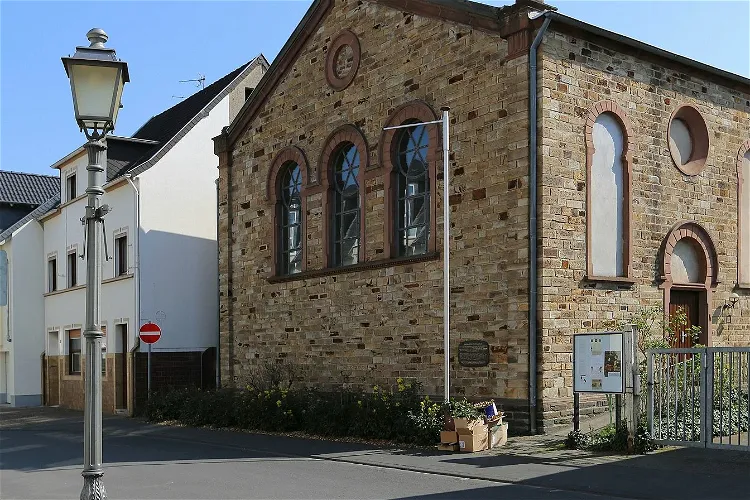
Synagoge Ahrweiler
Bad Neuenahr-AhrweilerThe Synagoge Ahrweiler, located in the district of the same name in Bad Neuenahr-Ahrweiler, Rhineland-Palatinate, is a significant historical site. Constructed by the Jewish community in 1894 on Altenbaustraße, the synagogue has been under monument protection since 1982. This makes it a place of historical and architectural interest for tourists.
Nibelungen Museum Worms
WormsThe Nibelungen Museum is a cultural institution located in the city of Worms, Germany. It is dedicated to the Nibelungen saga, a significant piece of Germanic literature. The museum provides an in-depth exploration of this epic tale, making it an interesting destination for those interested in literature, history, and Germanic culture.- 49
Landesmuseum Birkenfeld
Birkenfeld 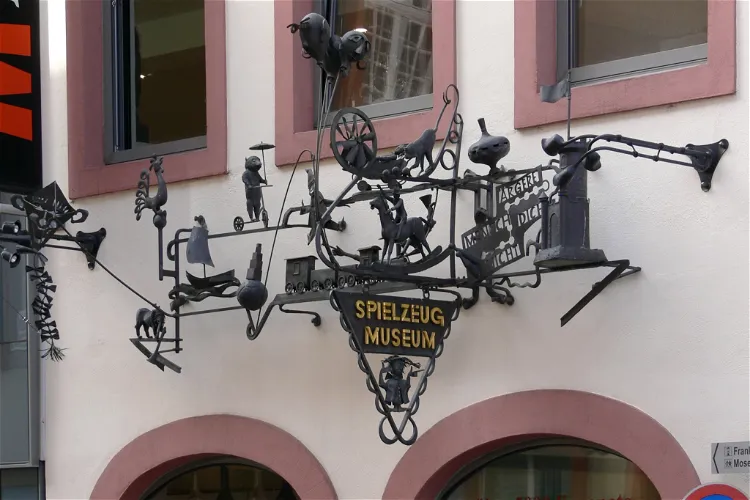
Toy Museum Trier
TrierIn October 2003, the Toy Museum Trier relocated to the "Steipe", a historic building situated on the Trier main market. This move allowed the museum to be more centrally located and easily accessible to visitors.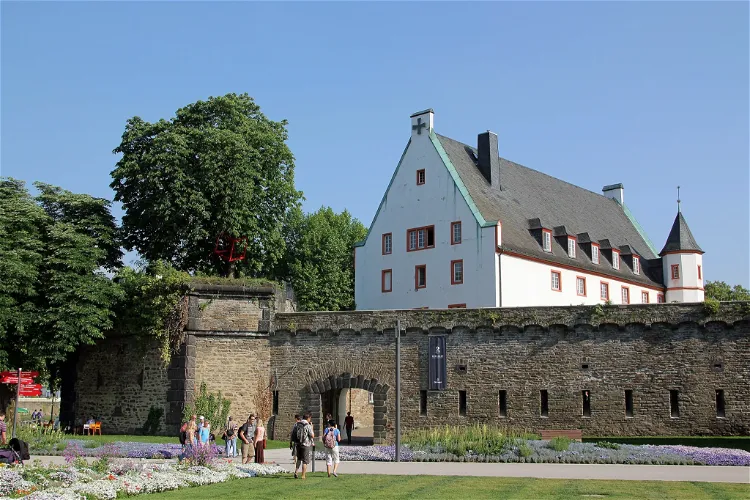
Ludwig Museum Koblenz
KoblenzThe Ludwig Museum is housed in the former "Kommende der Deutschherren" (the so-called Deutschherrenhaus), a building that dates back to the 13th century. The city of Koblenz was able to acquire this historic building with the support of the state of Rhineland-Palatinate.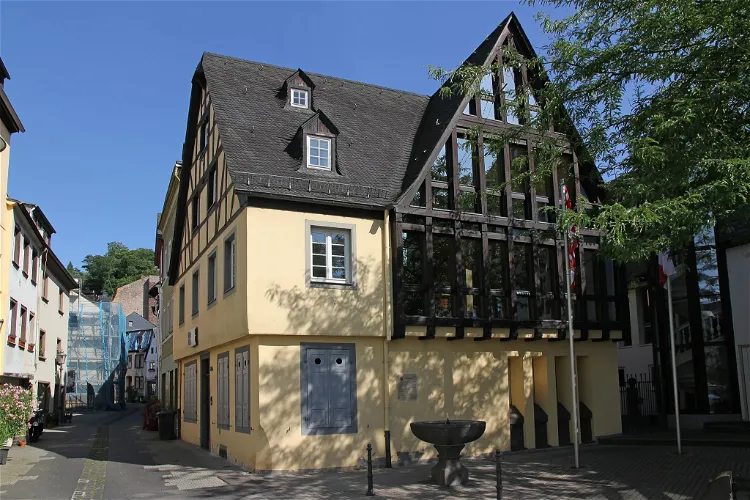
Mother of Beethoven House
KoblenzThe Mother Beethoven House in Koblenz is a significant historical site as it is the birthplace of Maria Magdalena Keverich, the mother of the renowned composer Ludwig van Beethoven. Since 1975, the house has been transformed into a museum, offering visitors a glimpse into the life and times of Beethoven's family.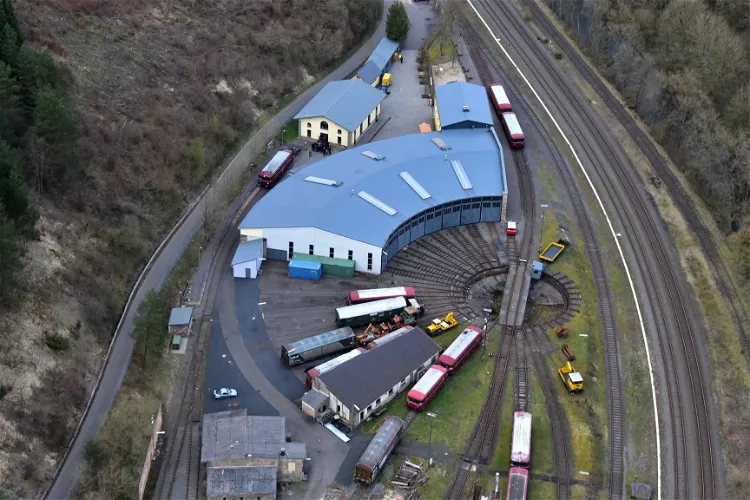
Bahnbetriebswerk Gerolstein
Gerolstein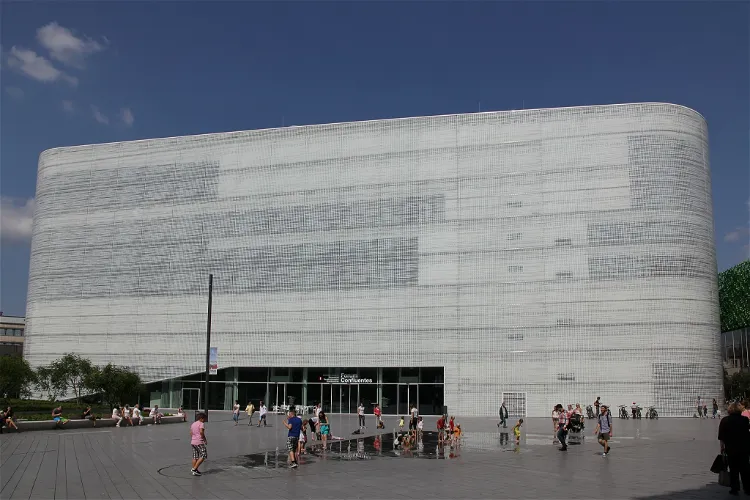
Mittelrhein Museum Koblenz
KoblenzThe Mittelrhein Museum, also known as the Museum of the Middle Rhine Valley, is situated in the city of Koblenz. This museum is one of the oldest civic museums in Germany, tracing its origins back to 1835 when it was founded with a donation of over 200 works from pastor and educator Joseph Gregory Lang. Despite its modest size compared to world-renowned collections, it remains a significant cultural institution in the region.- 55
Im Deinhard Stammhaus Koblenzer Sektmuseum
Koblenz 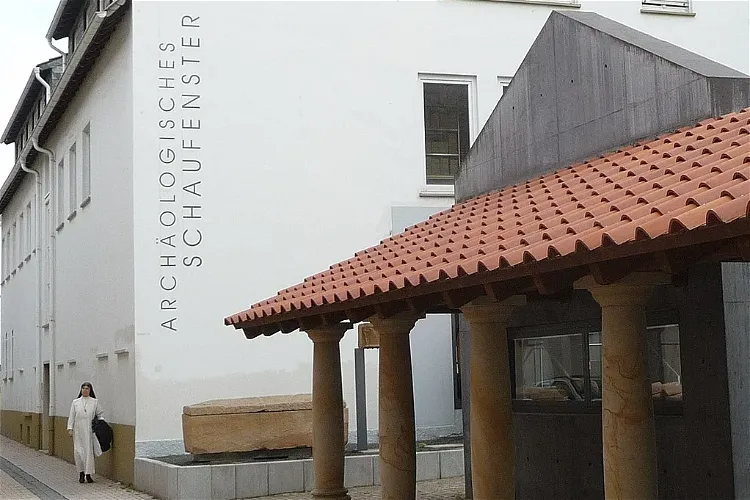
Archäologisches Schaufenster
SpeyerThe Archaeological Showcase, located in Speyer, is a museum that falls under the jurisdiction of the General Directorate of Cultural Heritage Rhineland-Palatinate. It was inaugurated in the year 2006 and has since been a significant cultural landmark in the region.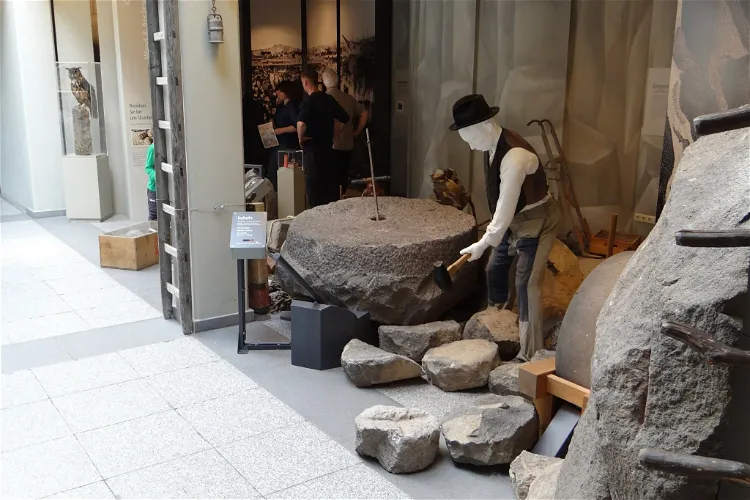
Erlebniswelten Grubenfeld
MayenThe Erlebniswelten Grubenfeld Museum in Mayen offers a unique insight into the history of basalt mining, dating back to the Neolithic Age. This museum is a part of the Vulkanpark, which consists of six museum facilities. It provides a comprehensive overview of the mining history over the past 7000 years, making it a fascinating destination for those interested in geology and history.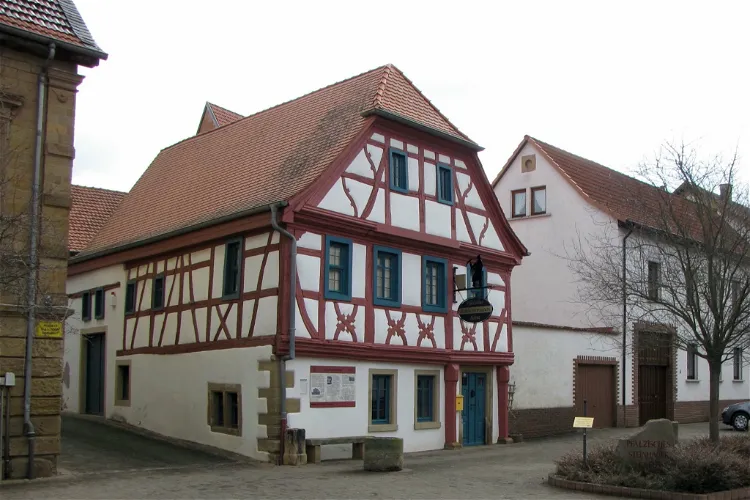
Palatine Stonemason Museum
AlsenzThe Palatine Stonemason Museum, which has been in operation since 1995, offers a comprehensive display of stonemasonry exhibits spanning from the Roman era to the present day. This provides a unique opportunity for visitors to delve into the rich history and evolution of stonemasonry over the centuries.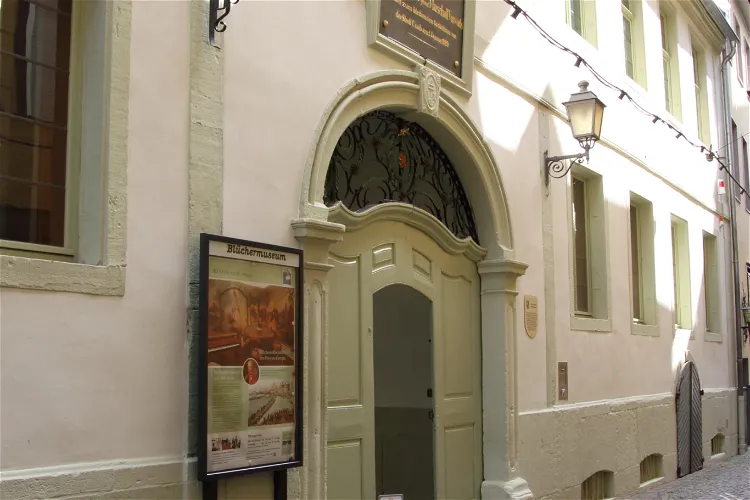
Blüchermuseum
KaubThe Blüchermuseum Kaub is a city-run museum located in Kaub on the Rhine. It is dedicated to the Prussian Field Marshal von Blücher, a significant figure who played a crucial role in the liberation wars against Napoleon. The museum serves as a tribute to his contributions and achievements during this historical period.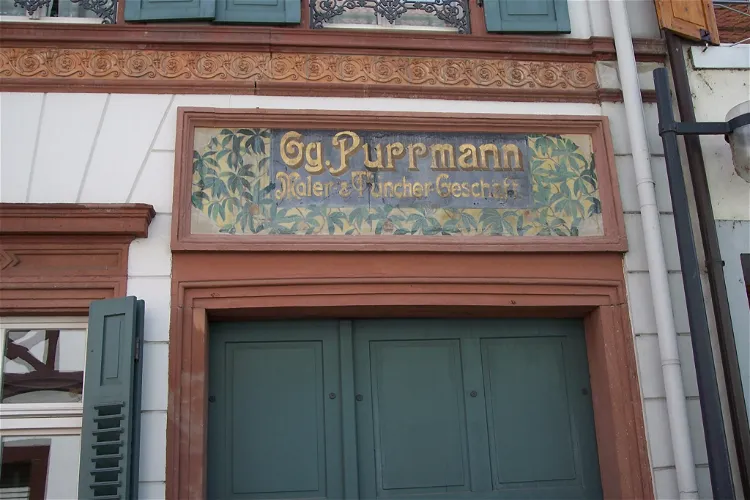
Purrmann house
SpeyerThe Purrmann House is a museum located in the old town of Speyer, dedicated to the renowned painter Hans Purrmann (1880–1966). This historic building is a significant part of the city's cultural heritage and offers a deep insight into the life and works of Hans Purrmann.
Keramikmuseum Westerwald
Höhr-GrenzhausenThe Keramikmuseum Westerwald in Höhr-Grenzhausen is known as the German Collection for Historical and Contemporary Ceramics. This museum is a significant destination for those interested in the history and evolution of ceramics, both from a historical and contemporary perspective.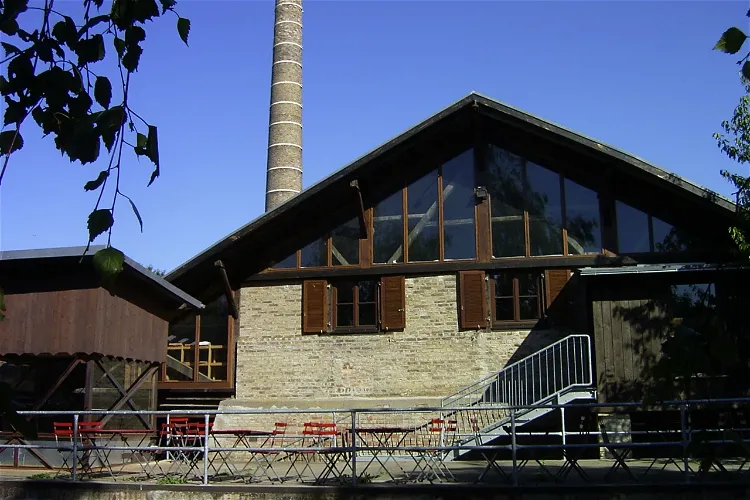
Ziegelmuseum Mainz
MainzThe Alte Ziegelei, located in Mainz-Bretzenheim, is an industrial monument that has been transformed into a brick museum. It also serves as a non-commercial educational, leisure, and cultural center. This unique combination of history, education, and culture makes it an interesting destination for tourists who are interested in industrial history, brick making, or simply looking for a unique cultural experience.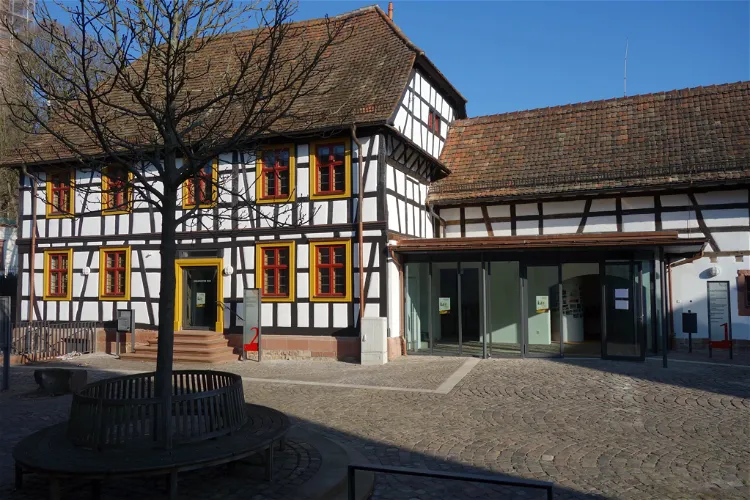
Museum Herxheim
HerxheimThe main focus of Museum Herxheim is on the earliest part of the Neolithic period. It pays special attention to the findings and results from the ritual site of Herxheim. In addition to this, the museum also provides insights into the regional cultural history. This makes it a great place for those interested in history and archaeology.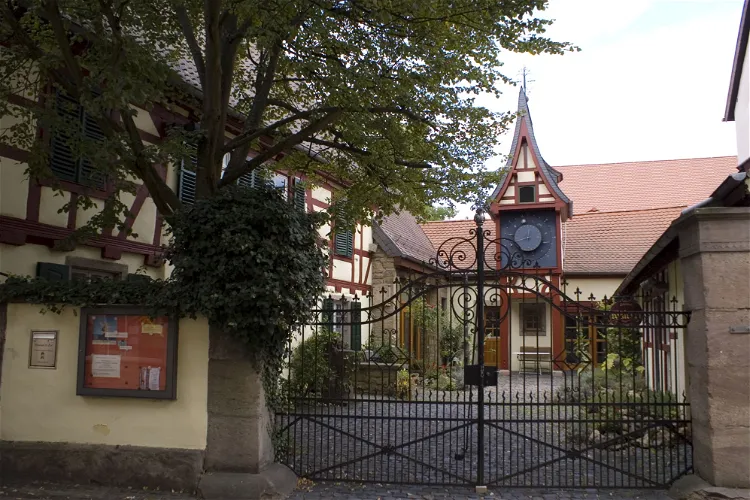
Museum für Zeit
RockenhausenThe Museum für Zeit – Pfälzisches Turmuhrenmuseum in Rockenhausen is housed in a former farmhouse and showcases a collection of historical timekeeping devices. This includes a large astronomical clock and a carillon, providing visitors with a unique insight into the history and evolution of timekeeping.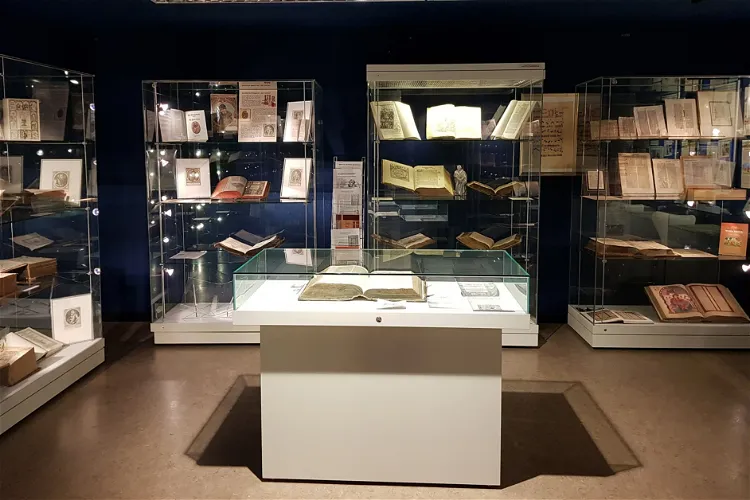
Pfälzisches Erlebnis Bibelmuseum
Neustadt an der WeinstraßeThe Pfälzisches Erlebnis-Bibelmuseum, located in Neustadt an der Weinstraße, is a museum that focuses on the Bible and its history. Founded by the Protestant theologian Michael Landgraf, the museum is run by the Pfälzischer Bibelverein e.V., the Bible Society of the Protestant Church of the Palatinate. The museum is housed in the so-called 'Bible House' on Stiftstraße 23.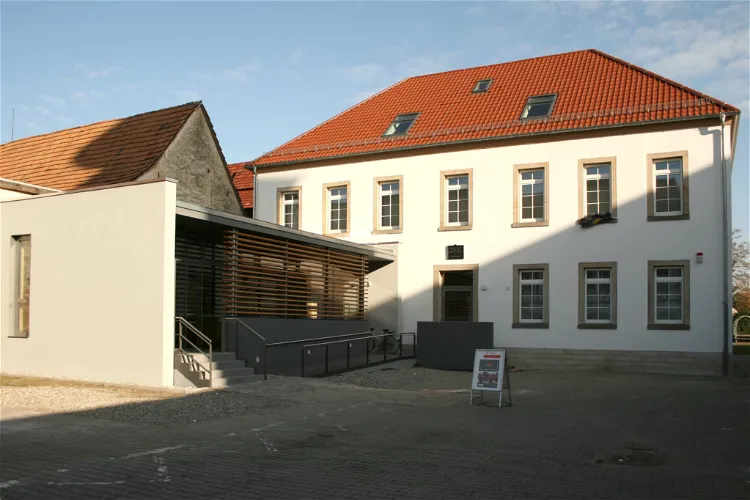
Terra Sigillata Museum
Rheinzabern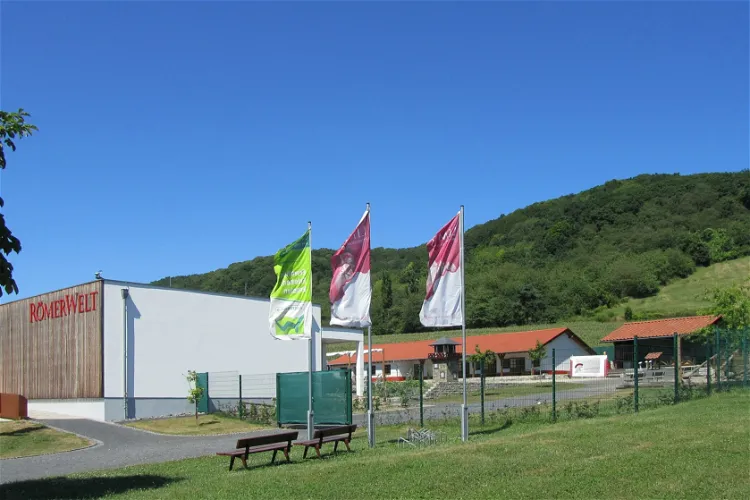
Roman world at the Caput Limitis
RheinbrohlThe RömerWelt museum at caput limitis, located in the Arienheller district of the municipality of Rheinbrohl, is a significant historical site. Opened on August 23, 2008, it serves as the Limes information center of the state of Rhineland-Palatinate. The museum provides a wealth of information about the Roman Empire's border system, known as the Limes, making it a valuable destination for those interested in Roman history.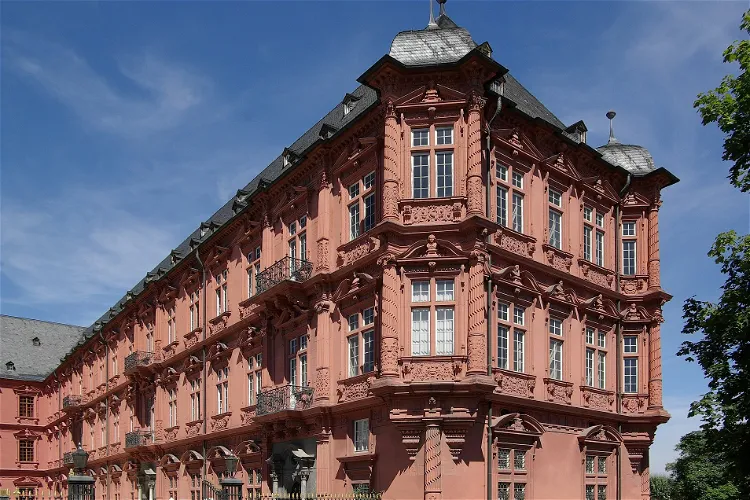
Leibniz Research Institute for Archaeology
MainzThe Römisch-Germanisches Zentralmuseum (RGZM), or the Roman-Germanic Central Museum, is a significant archaeological institution located in Mainz, Rhineland-Palatinate, Germany. Established in 1852, the museum is housed in the Elector's Castle and offers a systematic overview of Europe's history, covering periods from the Paleolithic to the High Middle Ages.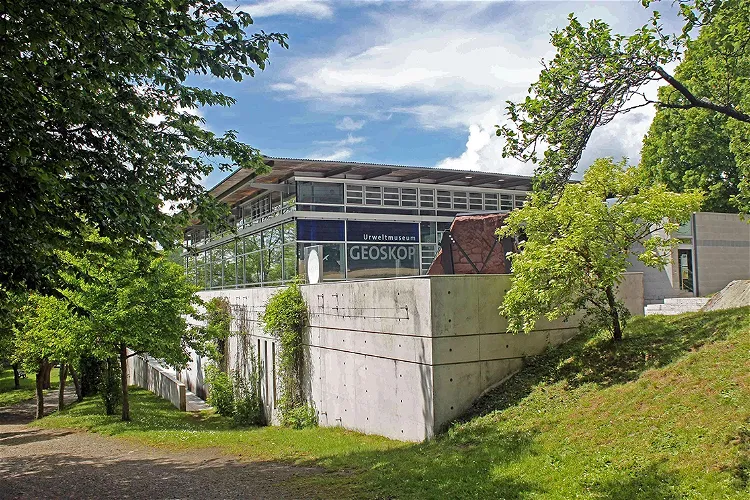
Urweltmuseum Geoskop
ThallichtenbergThe Urweltmuseum Geoskop is a natural history museum that focuses on the geological history of the Palatinate region. It is situated at Burg Lichtenberg near Thallichtenberg, in close proximity to the western Palatinate county town of Kusel in Rhineland-Palatinate. Since its opening in 1998, it has become the largest information center for the geology of this region.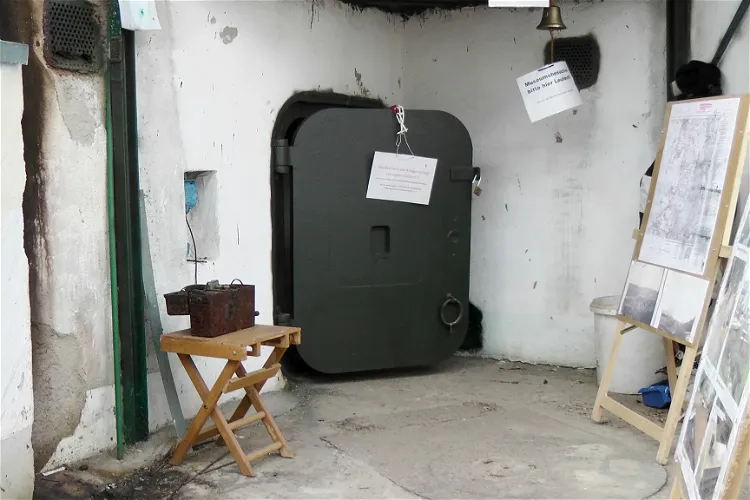
Westwallmuseum Konz
KonzThe Westwallmuseum Konz is situated in the heart of the city of Konz, in the Rheinland-Pfalz region, specifically in Trier-Saarburg, where the Saar and Mosel rivers meet. This central location makes it easily accessible for tourists visiting the area.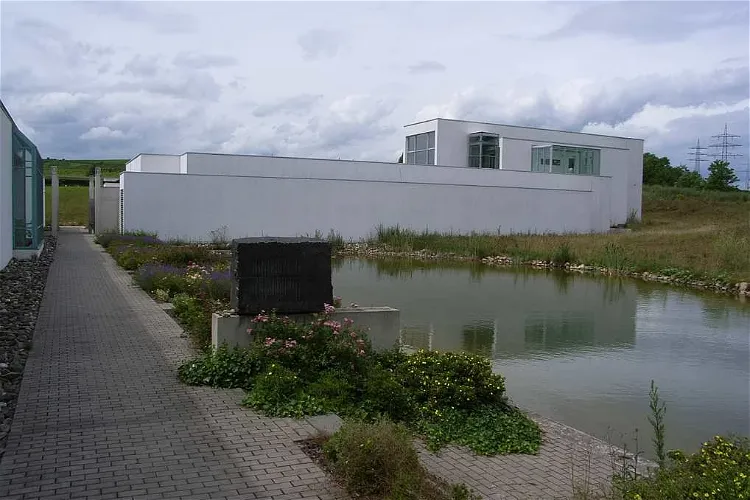
Orgel Art Museum
WindesheimThe Orgel Art Museum boasts a collection of over 30 keyboard instruments. This includes a variety of organ instruments, clavichords, art harmoniums, and table pianos. Visitors can explore the evolution of keyboard instruments and appreciate the craftsmanship involved in their creation.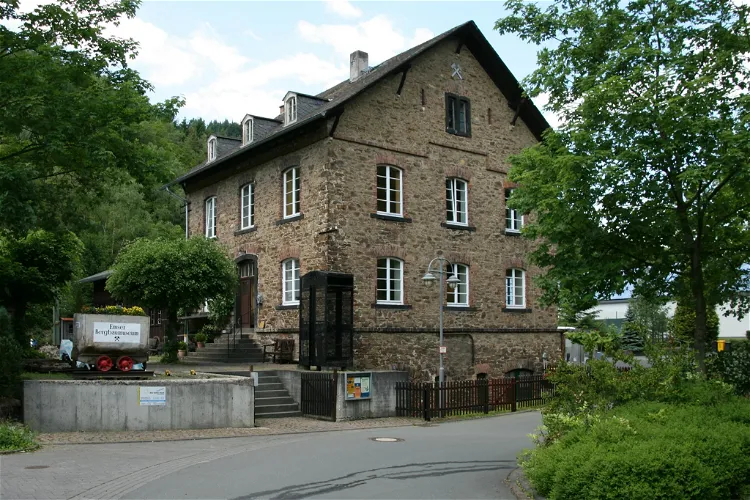
Emser Bergbaumuseum
Bad Ems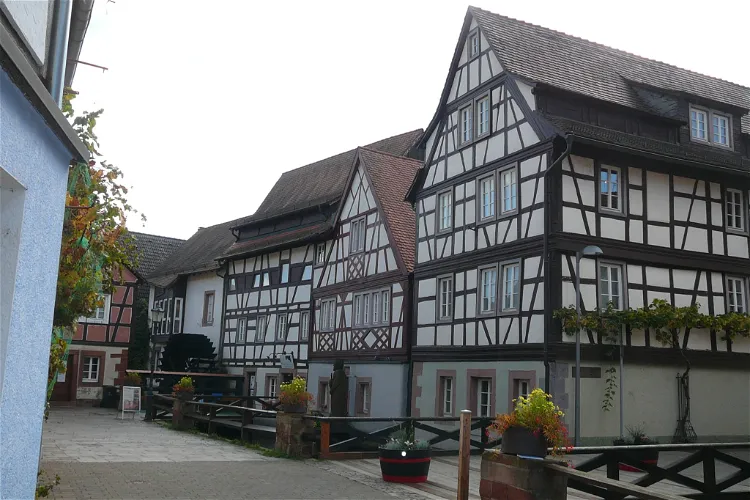
Museum unterm Trifels
Annweiler am TrifelsThe Museum unterm Trifels is the city museum of Annweiler am Trifels. It is situated at the foot of the Rehberg, a mere two kilometers away from the city. This location makes it easily accessible for tourists visiting the city and provides a great opportunity to learn about the history and culture of the region.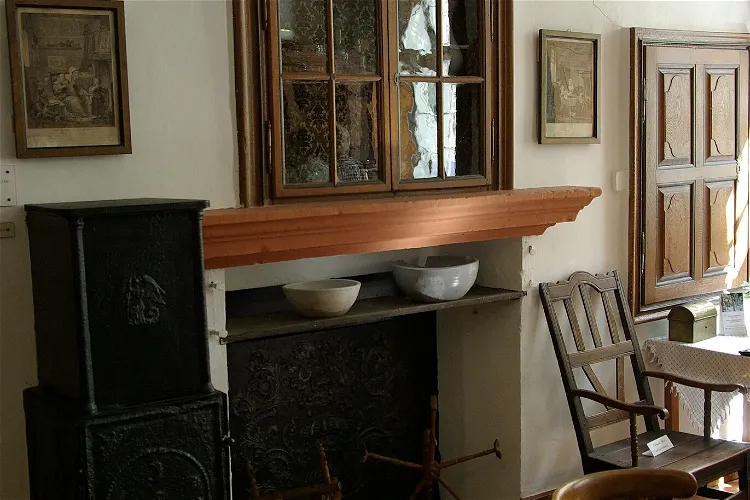
Mittelmosel-Museum
Traben-Trarbach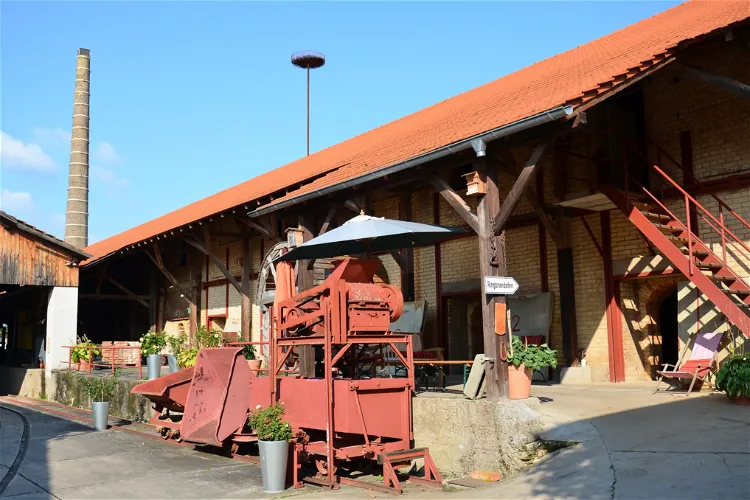
Ziegeleimuseum Sondernheim
GermersheimThe Ziegelei-Museum is a privately owned museum situated to the south of Germersheim on the Rhine. This location offers visitors a chance to explore the rich history of the region while enjoying the scenic beauty of the Rhine.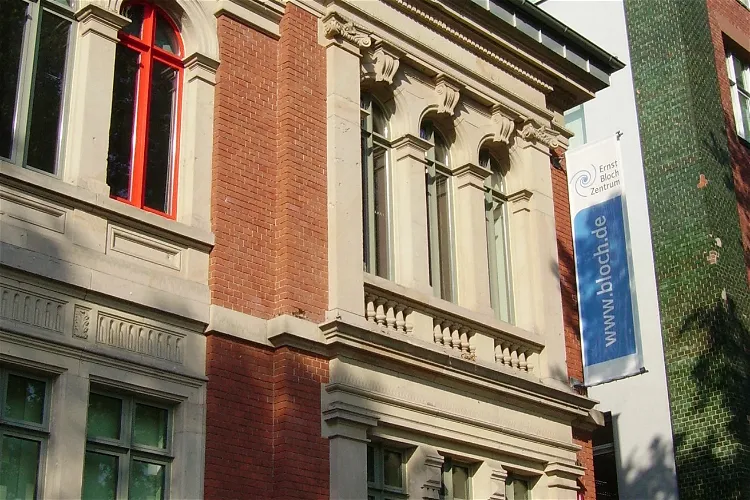
Ernst-Bloch-Zentrum
Ludwigshafen am RheinThe Ernst-Bloch-Zentrum was founded in November 2000 in Ludwigshafen am Rhein, the birthplace of the German philosopher Ernst Bloch. The center was established to commemorate Bloch's life and work, and to promote his philosophical ideas.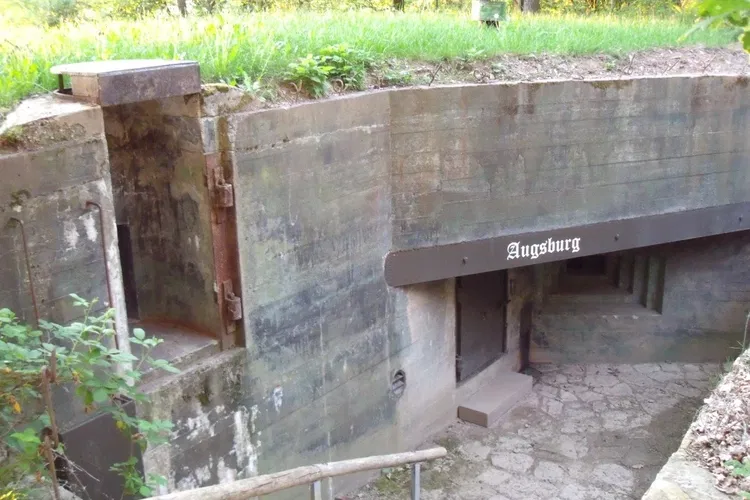
Westwallmuseum Wiltingen
WiltingenThe Westwallmuseen Wiltingen is a unique historical site that features two privately restored Westwall bunkers: The MG-Schartenstand and the Artillery Observer. These bunkers provide a glimpse into the past and offer an opportunity to learn about the history of the region during the war times.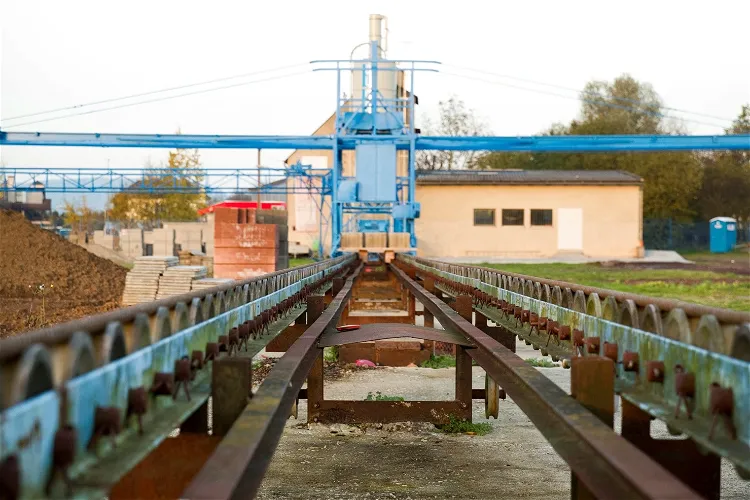
Deutsches Bimsmuseum
KaltenengersThe Deutsches Bimsmuseum, located in Kaltenengers near Koblenz, is dedicated to the history of pumice mining and the production of pumice stone in the Neuwied Basin. The museum traces the industry's development from its inception in the mid-19th century to the present day.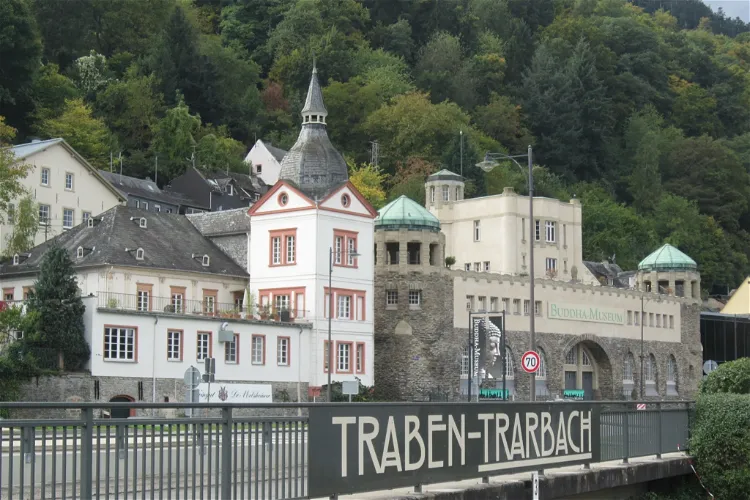
Buddha Museum
Traben-TrarbachThe Buddha Museum in Traben-Trarbach, which opened its doors in 2009, is home to an impressive collection of around 2000 Buddha figures. In addition to the display of these figures, the museum also provides comprehensive information about Buddhism, making it a valuable resource for those interested in learning more about this religion.
Krippenmuseum Klüsserath
Klüsserath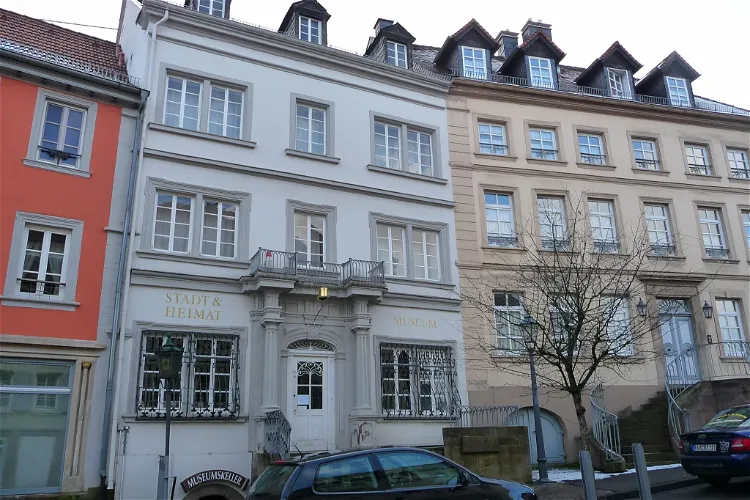
Stadt-und Heimatmuseum
Kusel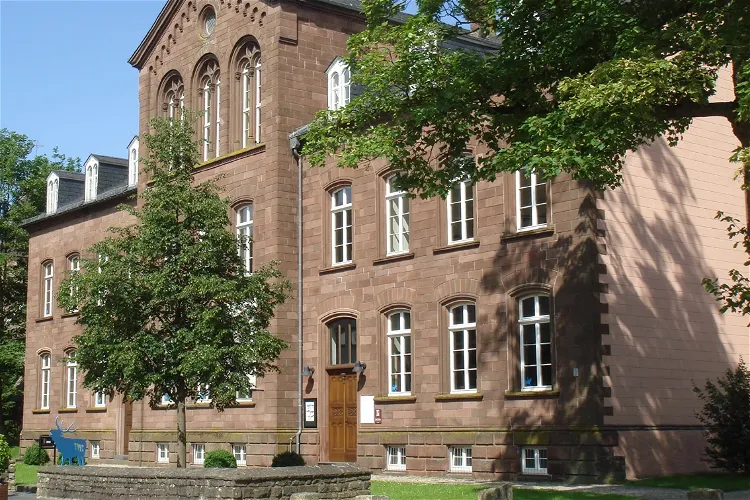
Kreismuseum Bitburg-Prüm
BitburgThe Kreismuseum Bitburg-Prüm is a local museum situated in Bitburg. It is home to collections that depict the everyday and cultural history of the Eifel region. Visitors can gain insights into the life and work environments of the past three centuries through the museum's exhibits.
Jüdisches Museum Worms Raschihaus
WormsThe Raschi-Haus is a significant historic building located in the Jewish quarter of the city of Worms. It is situated in the southern part of the synagogue district, making it a central part of the Jewish Worms. This location has been an important part of the Jewish community in Worms for centuries, and its rich history is reflected in the architecture and exhibits of the building.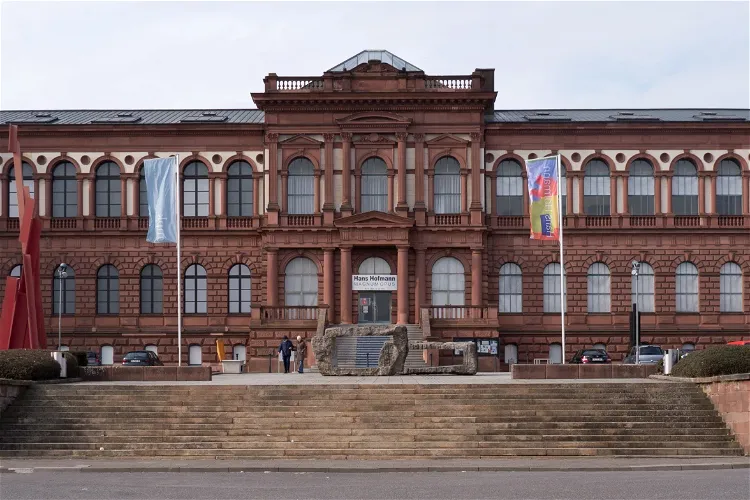
Museum Pfalzgalerie
KaiserslauternThe Museum Pfalzgalerie Kaiserslautern boasts a comprehensive collection of graphic art, making it a significant destination for art enthusiasts. The museum operates under the sponsorship of the Palatinate District Association, further emphasizing its importance in the region's cultural landscape.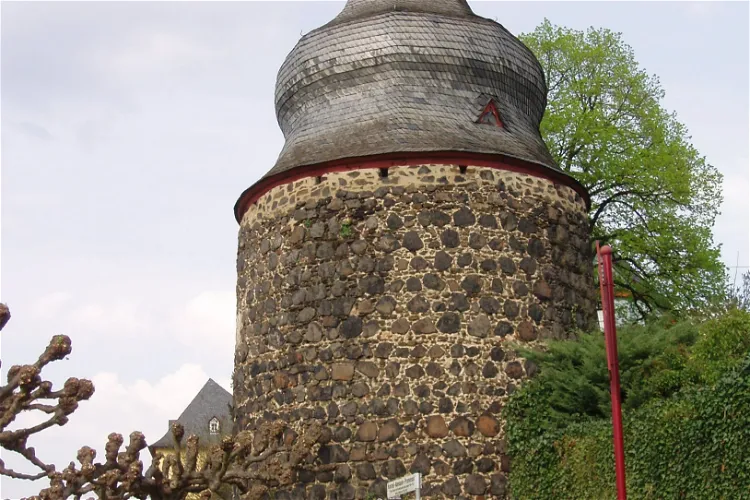
Gefängnisturm
Unkel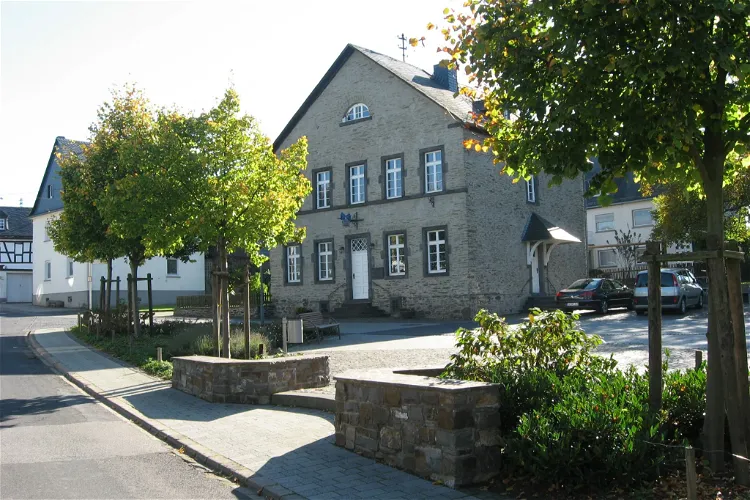
Familienstiftung Pies-Archiv
EveshausenThe Vorderhunsrück-Museum and Pies-Archiv offers permanent exhibitions that delve into various aspects of history. These include the history of medicine, regional history, and the history of the Pies family, with a particular focus on the Hunsrücker bone healers. These exhibitions provide a comprehensive understanding of the region's past and its medical practices.
Roentgen-Museum
NeuwiedThe Roentgen-Museum in Neuwied is a unique institution dedicated to the exploration of living culture. It is named after the renowned Neuwied furniture makers, Abraham Roentgen and David Roentgen, whose works are a significant part of the museum's collection. Visitors can expect to see a wide range of exhibits that reflect the craftsmanship and design sensibilities of these two influential figures.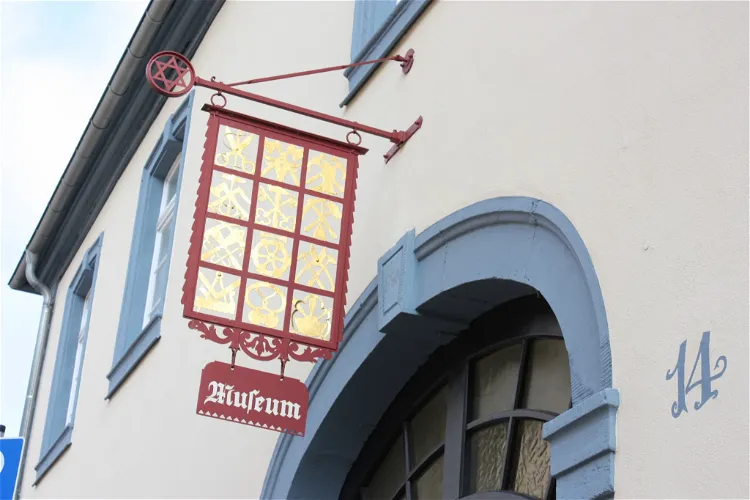
Museum in the city palace Kirchheimbolanden
KirchheimbolandenThe Museum in the City Palace for City and Regional History is a significant cultural institution located in the North Palatinate city of Kirchheimbolanden. It offers visitors a chance to delve into the rich history of the city and the region, providing a unique perspective on the past.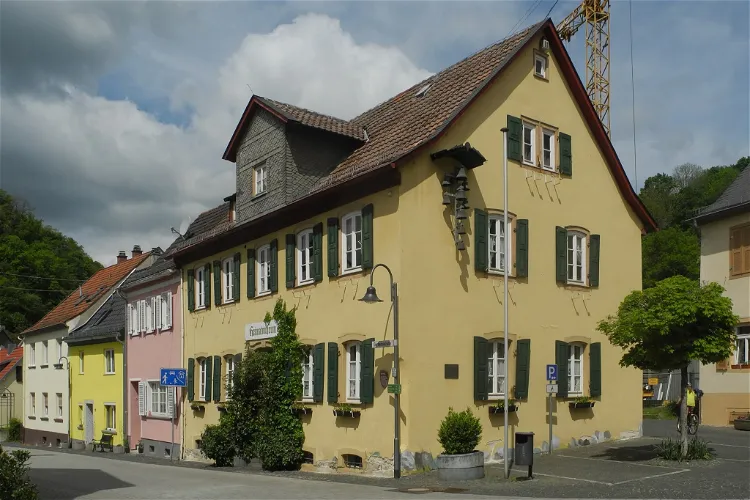
Heimatmuseum Stromberg
Stromberg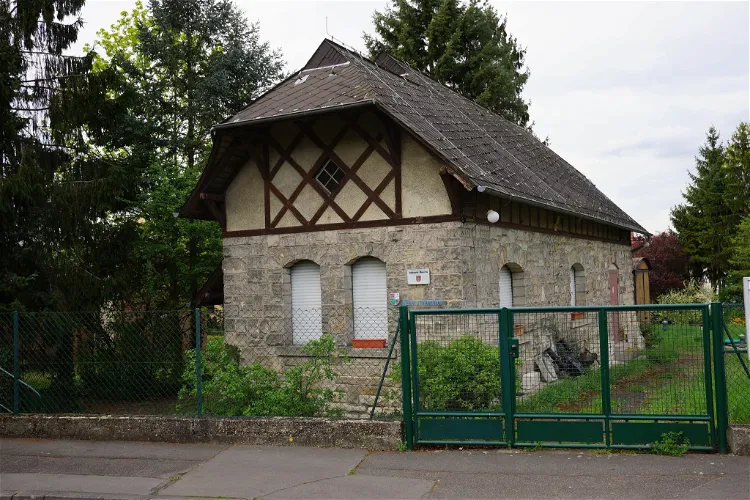
Museum für Mombacher Ortsgeschichte
Mainz- 91
Rheinische Eisenkunstguss-Museum
BendorfThe Rheinische Eisenkunstguss-Museum, located in the Sayner Hütte, showcases a selection of its collection. This collection primarily focuses on the industrialization period of the city of Bendorf and its surroundings. The museum offers a unique opportunity to delve into the history of the region and understand the industrial development that took place. - 92
Jüdisches Museum Steinbach am Glan
Steinbach am GlanThe Jewish Museum in Steinbach am Glan, situated in Lindenstraße, serves as a comprehensive documentation of the history of Jews in the local community and the wider region. It provides an insightful look into the Jewish heritage and culture that has been a part of the area's history. 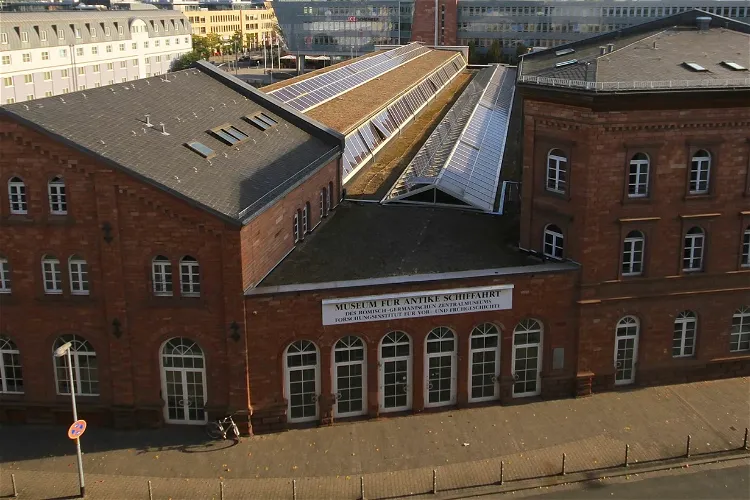
Museum of Ancient Seafaring
MainzThe Museum of Ancient Seafaring houses a variety of exhibits that provide a comprehensive insight into the maritime history of the Roman era. These include remains of five Roman warships from the 4th century, full-size replicas, a fragment of a barge, numerous ship reliefs and stone monuments. Additionally, models and display boards offer further information about ancient shipbuilding, construction techniques, and Roman fleet operations in the Germanic provinces and throughout the empire.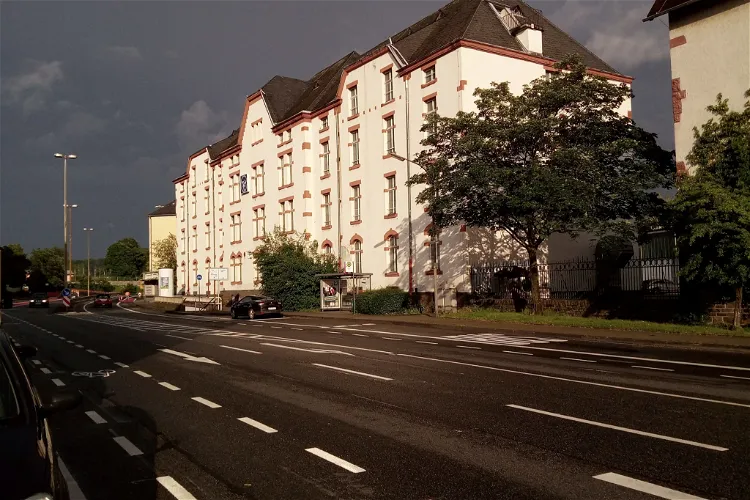
Bundeswehr Museum of German Defense Technology
KoblenzThe Wehrtechnische Studiensammlung Koblenz (WTS) is recognized as one of the largest technical exhibitions in Germany. The museum's primary focus is on military technology, making it a unique destination for those interested in this field. It offers a comprehensive insight into the evolution and development of military technology over the years.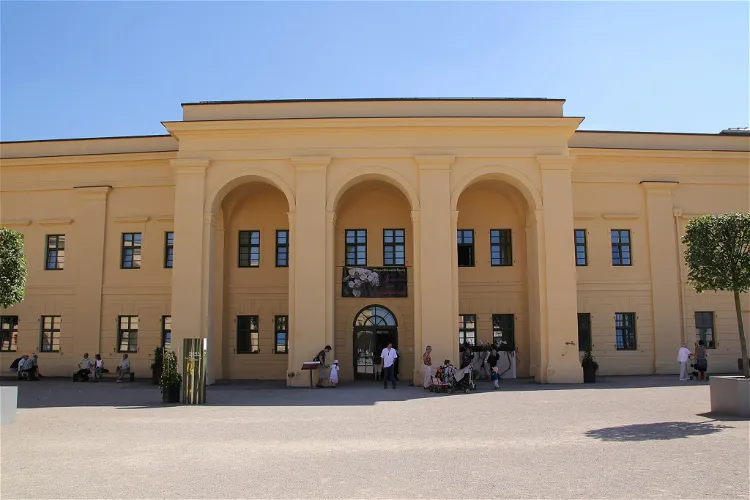
Landesmuseum
KoblenzThe Landesmuseum Koblenz is a museum situated on the Ehrenbreitstein Fortress in Koblenz. It is the third state museum in Rhineland-Palatinate, following Mainz and Trier. The museum's location on a fortress adds a unique historical context to the exhibits and offers visitors a chance to explore the fortress grounds as well.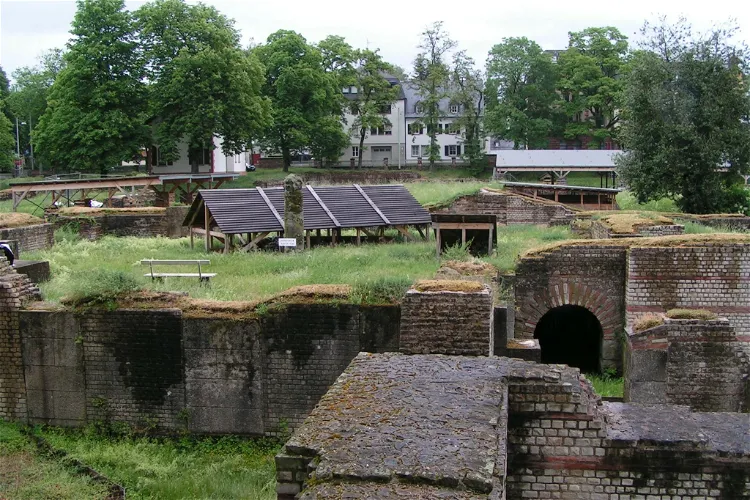
Barbara Baths
TrierThe Barbara Baths, known as Barbarathermen in German, are a significant Roman bath complex located in modern-day Trier, Germany. Covering an area of over 42,000 square meters, they are recognized as the largest Roman bath north of the Alps.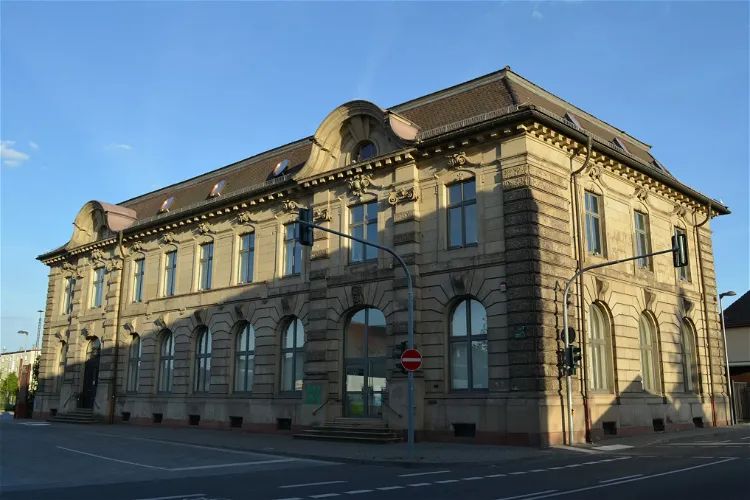
Städtisches Museum Landau
Landau in der PfalzSince 2009, the museum has been housed in the renovated Old Railway Post Office at the main train station. This location makes it easily accessible for tourists arriving by train. The building itself, a long, neo-baroque mansard hipped roof construction from 1897, is a sight to behold.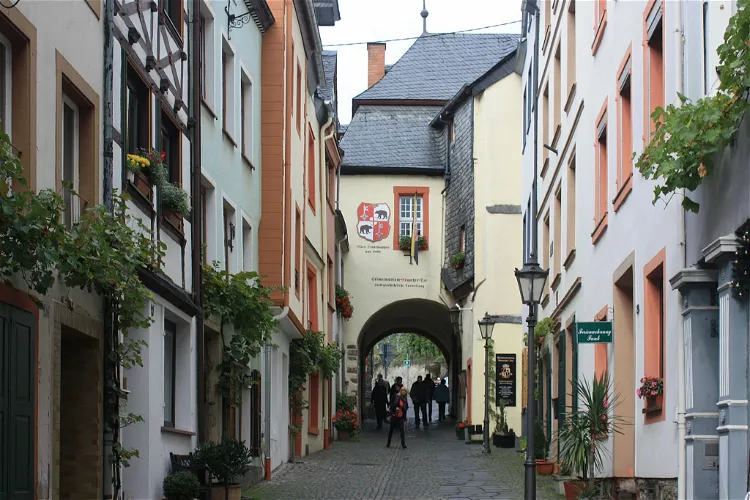
Museum Graacher Tor
Bernkastel-Kues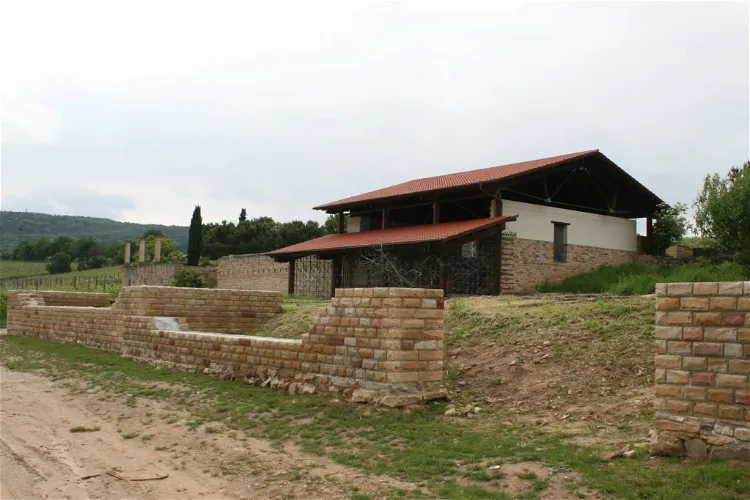
Römisches Weingut Weilberg
Bad DürkheimThe Villa rustica Weilberg is a Roman estate located in Bad Dürkheim - Ungstein in Rhineland-Palatinate. This historical site is prominently visible from the northern part of the town Ungstein, situated on the southern slope of a vineyard. The name Weilberg refers to the remnants of the estate, which were still clearly visible even in the post-Roman period.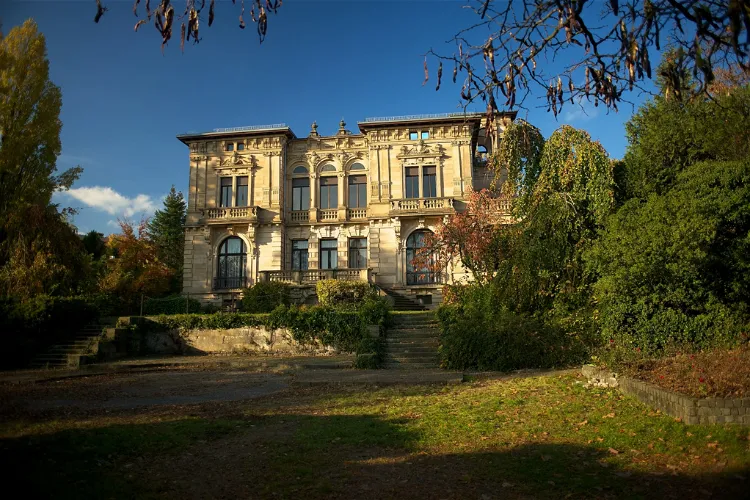
Stadtmuseum Villa Böhm
Neustadt an der WeinstraßeVilla Böhm, a protected monument, is home to the Stadtmuseum Neustadt an der Weinstraße. This historic villa, located in Neustadt an der Weinstraße, Rheinland-Pfalz, offers a glimpse into the city's past through its permanent exhibition. The museum also hosts rotating exhibitions and events, providing a dynamic and engaging experience for visitors.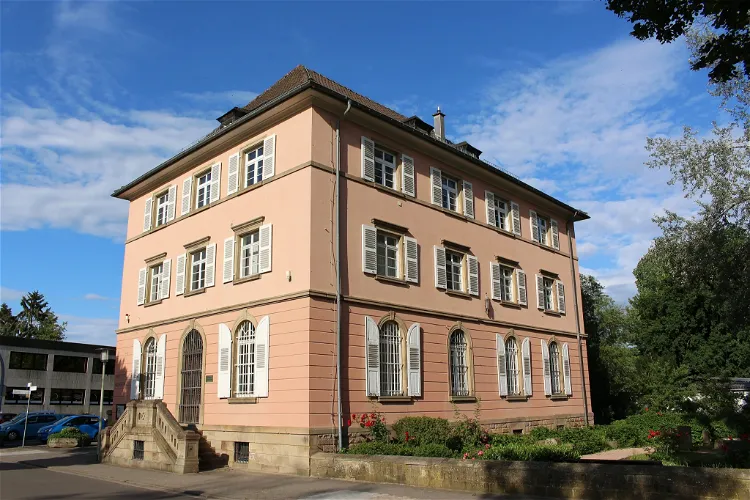
Nordpfälzer Heimatmuseum
Rockenhausen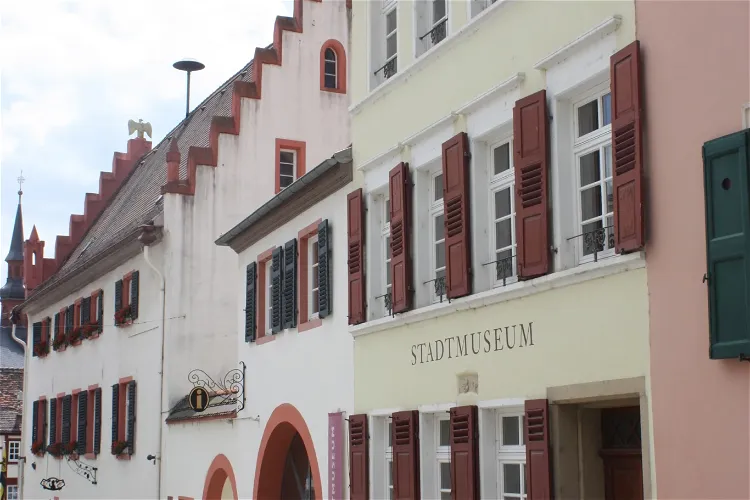
Stadtmuseum Oppenheim
Oppenheim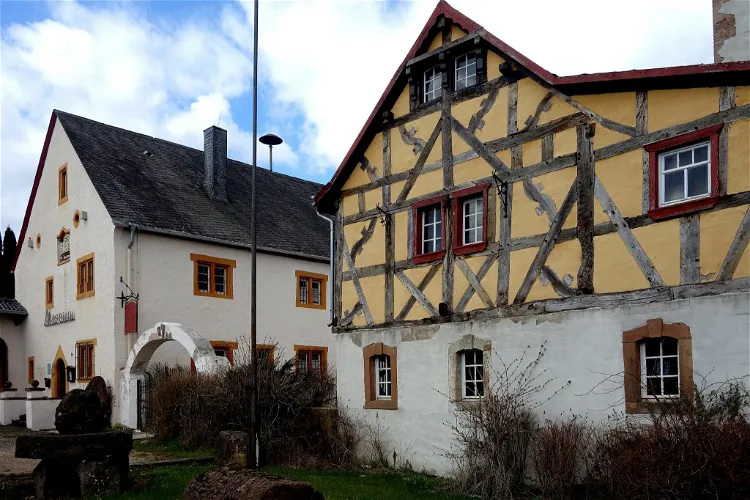
Kreisheimatmuseum
GerolsteinThe Kreisheimatmuseum Gerolstein is situated in the former Sarresdorf parsonage in the city of Gerolstein, within the Vulkaneifel district of Rhineland-Palatinate. This building holds the distinction of being the oldest in the city.
Heimatmuseum Schifferstadt
Schifferstadt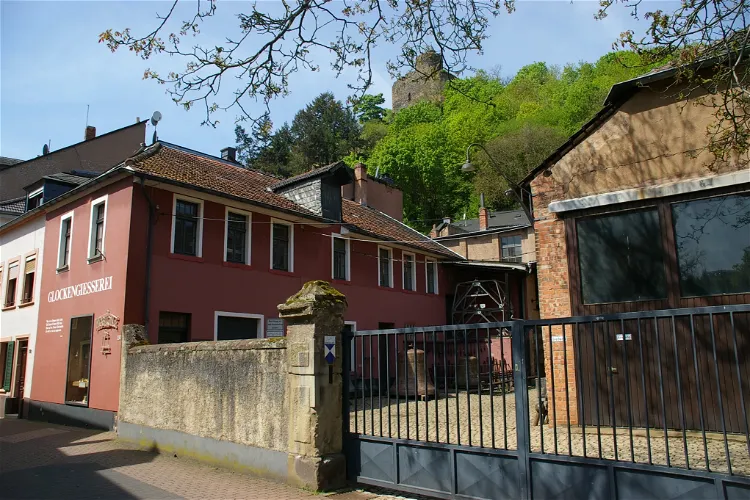
Museum Glockengießerei Mabilon
SaarburgThe Mabilon Bell Foundry in Saarburg is a historic site with a rich family history dating back to 1590. The Mabilon family, originally from Saumur on the Loire, has owned and operated the foundry for centuries, passing down the art of bell casting from generation to generation.
Museum im Alten Rathaus
PirmasensThe Alte Rathaus (Old Town Hall) in Pirmasens is a monument-protected late Baroque building located in the city center. It served as the town hall from 1771 to 1945. Today, it stands as one of the last remnants of the time when Pirmasens was the residence of Landgrave Ludwig IX of Hesse-Darmstadt.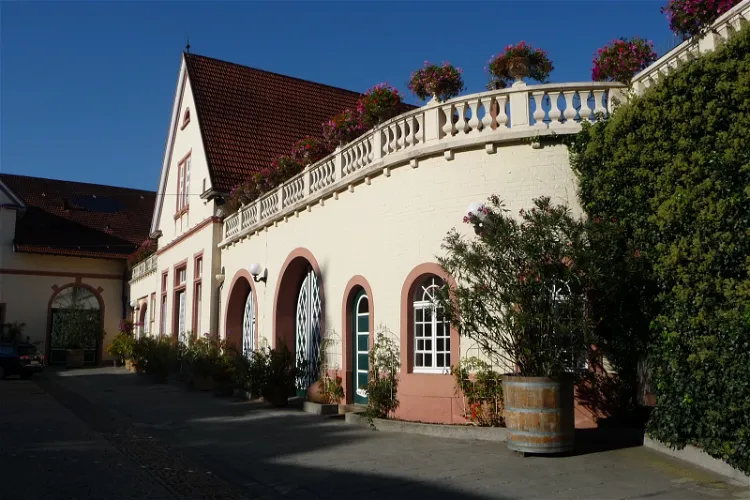
Schloss Wachenheim
Wachenheim an der WeinstraßeSchloss Wachenheim is a castle situated in the small town of Wachenheim an der Weinstraße. It is recognized as a cultural monument, making it a significant historical site for visitors interested in the rich cultural heritage of the region.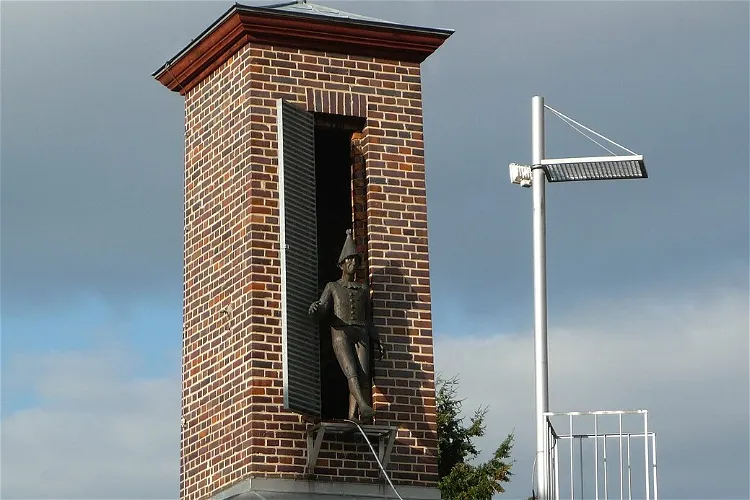
Bajasseum
Enkenbach-AlsenbornThe Bajasseum is a small circus museum situated in the heart of Alsenborn. It serves as a reminder of the town's rich history of performers and artists. The museum is named after the nickname of the Alsenborn residents, 'Bajass', which is derived from the Italian word 'Bajazzo' meaning 'jester'. The 'Bajass' is symbolized on the town hall fountain of the Enkenbach-Alsenborn municipality with a pointed clown hat and a balancing pole in hand.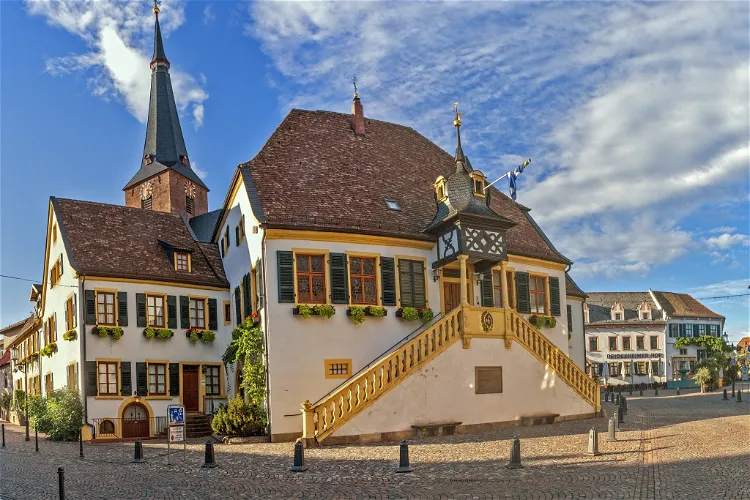
Museum of Wine Culture
DeidesheimThe Museum of Wine Culture in Deidesheim is a unique destination that offers a comprehensive look at the influence of wine and viticulture on various societal sectors. Visitors can explore exhibits that document the impact of wine on religion, art, economy, medicine, and politics. This provides a fascinating insight into the multifaceted role of wine in society throughout history.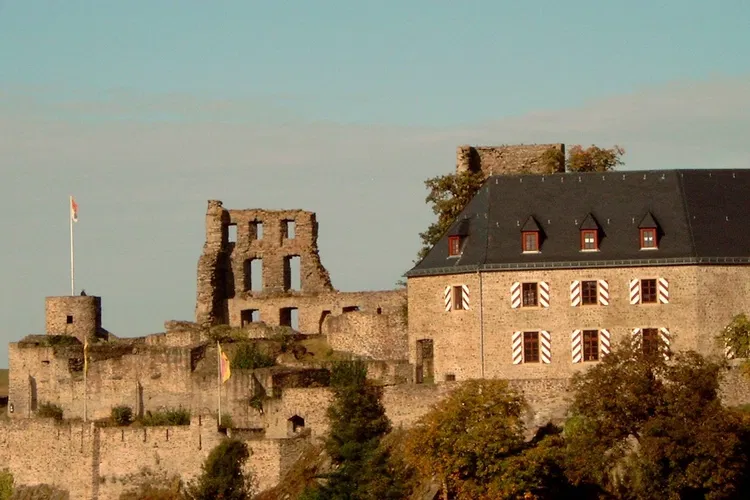
Kastellaun Castle
KastellaunKastellaun Castle, located in Kastellaun, Germany, is a medieval castle that dates back to the 13th century. The castle, which is now in ruins, was first mentioned in historical records in 1226. Despite its ruined state, the castle still stands as a testament to the architectural prowess of the medieval period and offers a glimpse into the region's rich history.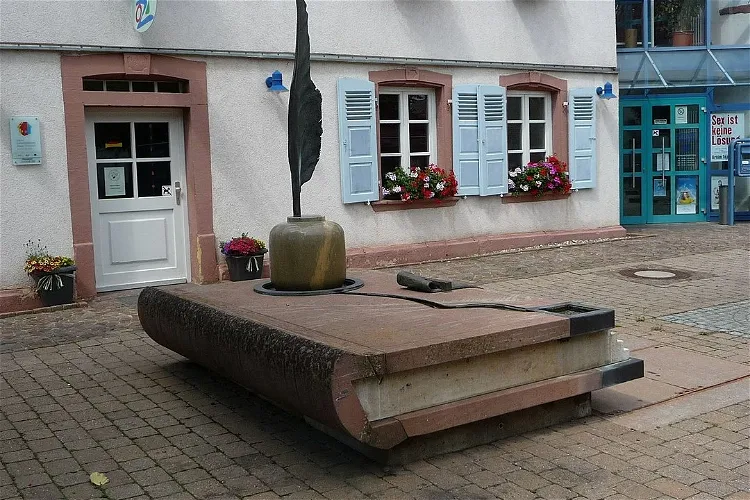
Queichtalmuseum
Offenbach an der Queich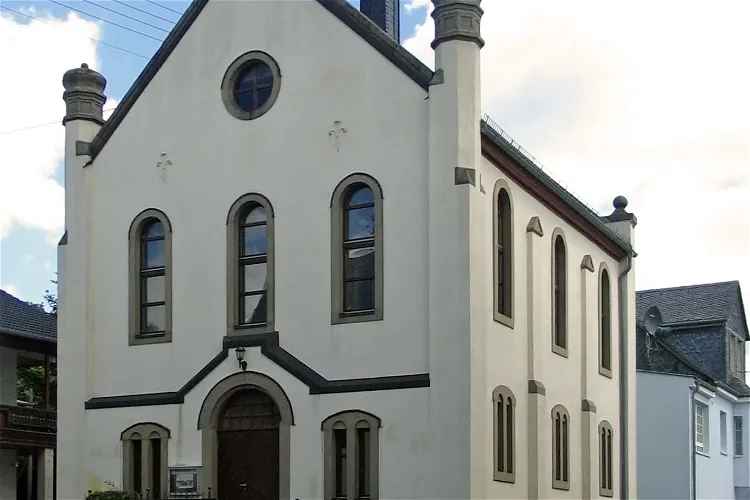
Synagoge Laufersweiler
LaufersweilerThe Synagogue in Laufersweiler, a quaint local community in the Rhein-Hunsrück district in Rhineland-Palatinate, was constructed in the years 1910 and 1911. This historic building is conveniently located at Kirchgasse 6, making it easily accessible for visitors.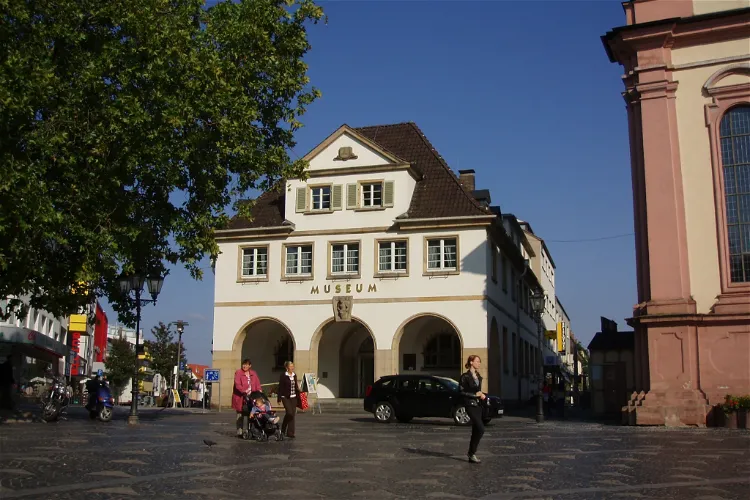
Erkenbert-Museum
Frankenthal (Pfalz)The Erkenbert-Museum in Frankenthal, Rheinland-Pfalz, is a museum dedicated to the city's history, with a special focus on local culture and art history. It provides a comprehensive overview of the city's past, making it an ideal destination for those interested in learning more about the region's history and culture.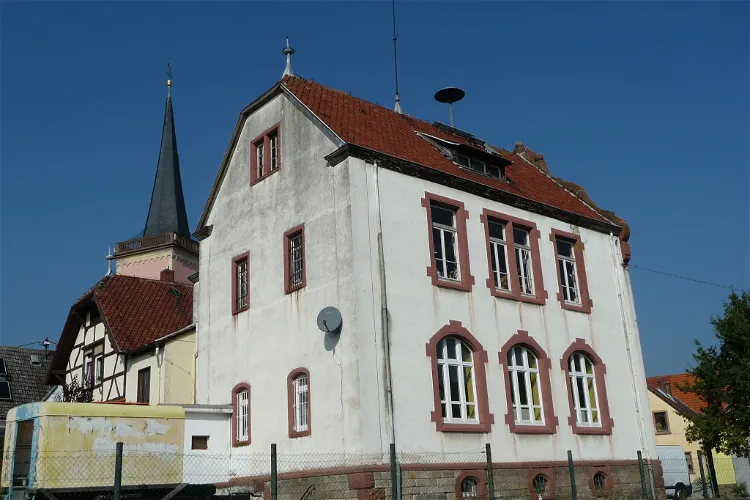
Heimatmuseum Eich
Eich
Motorrad- und Technikmuseum
QuirnheimThe Motorrad- und Technikmuseum Leiningerland, located in Rheinland-Pfalz, was founded in April 1991. However, due to unforeseen circumstances, the museum could only be opened to the public in 2001. This museum is a testament to the rich history and evolution of motorcycles and technology over the years.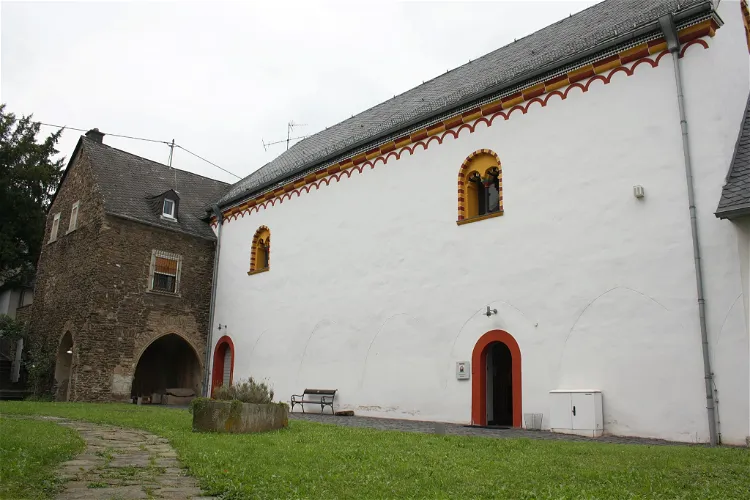
Stiftsmuseum
Treis-Karden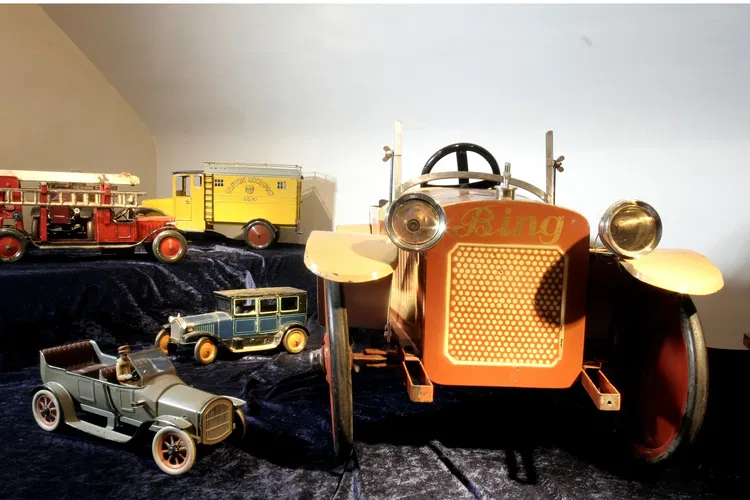
Historic Toy Museum, Freinsheim
FreinsheimThe Historic Toy Museum in Freinsheim, Germany, is a unique destination that houses a private collection of vintage toys. This museum offers a nostalgic journey through time, showcasing toys that date back to the Industrial Revolution and the Second World War. It's an opportunity to explore the evolution of toys and the role they played in the lives of children during these historical periods.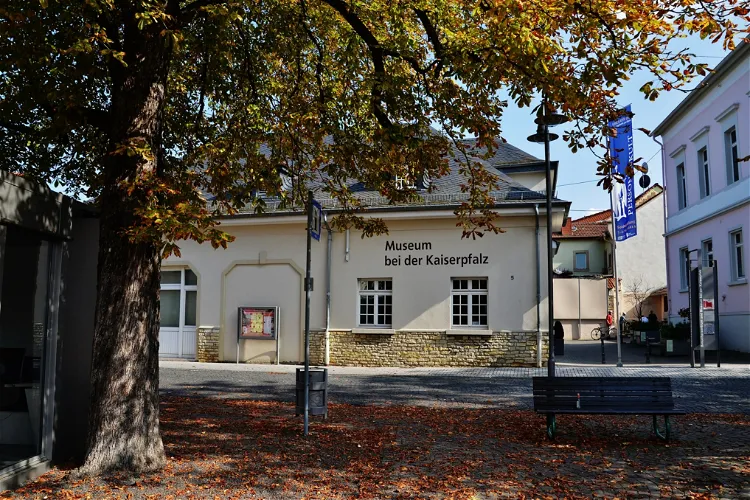
Museum bei der Kaiserpfalz
Ingelheim am Rhein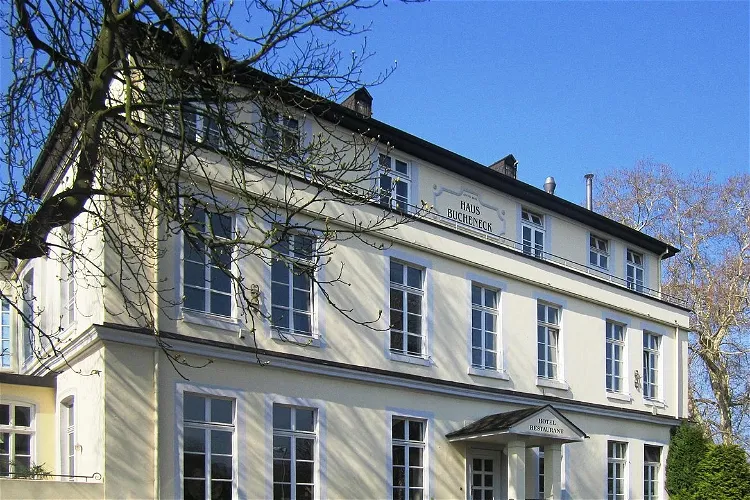
Haus Bucheneck
Linz am Rhein- 120
Museum Boppard- Kurfürstliche Burg
Boppard - 121
Museum Altes Schulhaus
Böhl-Iggelheim - 122
Heimatmuseum Fußgönheim
Fußgönheim - 123
Schützenmuseum
Bad Neuenahr-Ahrweiler - 124
Otto-Pfeiffer-Museum in Kirchen-Freusburg
Freusburg - 125
Stadthistorisches Museum
MainzThe Stadthistorisches Museum Mainz, founded in 2000, is dedicated to the over 2000-year-old city history of Mainz. The museum is supported by the city of Mainz, making it a significant institution in preserving and showcasing the city's rich history. - 126
Museum im Grafenschloss
Diez - 127
Docu Center Ramstein
Ramstein-Miesenbach - 128
Leutesdorfer Dorfmuseum
Leutesdorf - 129
Heimatmuseum Hohes Haus
Bad Hönningen - 130
Museum im Bauernkriegshaus
Landau in der Pfalz - 131
Limeskastell Pohl
Pohl - 132
Feldbahnmuseum Guldental
Guldental - 133
Regionalmuseum Leben und Arbeiten Nastätten
Nastätten - 134
Museum an der Münze
Neuleiningen - 135
Keltendorf am Donnersberg
Steinbach am Donnersberg - 136
Museum der VG-Eich
Gimbsheim - 137
Spielzeug- und Ikonenmuseum
Bernkastel-Kues - 138
Klostermuseum Historama
Hornbach - 139
Alte Welt Museum
Nußbach - 140
Hunsrückmuseum
Simmern/HunsrückThe Hunsrück Museum Simmern, located in the New Castle in Simmern, is the regional museum of the city. It houses a variety of collections that provide insights into the city and regional history. One of the highlights of the museum is its noteworthy fossil collection, which offers a unique glimpse into the region's geological past. - 141
Heimatmuseum Ältestes Haus
Haßloch - 142
Römermuseum im Haus Isenburg
Eisenberg (Pfalz) - 143
Museum der Stadt Bad Bergzabern
Bad Bergzabern - 144
Fastnachtsmuseum
Speyer - 145
Puppen- und Uhrenmuseum
Bernkastel-Kues - 146
Haus der Ikonen
Traben-Trarbach - 147
Stadtmuseum im Kulturzentrum Haus Catoir
Bad Dürkheim - 148
Roman Museum of Remagen
Remagen - 149
Kur- und Stadtmuseum
Bad Ems - 150
Johann-Winter-Museum
Andernach - 151
Krippenmuseum
Glockscheid - 152
Eifelmuseum
Mayen - 153
Heimatmuseum Bobenheim-Roxheim
Bobenheim-Roxheim - 154
Heimatmuseum Bodenheim
Bodenheim - 155
Römisches- u. Heimatmuseum
Bermel - 156
Industrial monument Jakob Bengel
Idar-ObersteinDuring the 1920s and 1930s, the Jakob Bengel factory emerged as one of the leading manufacturers of fashion jewelry, particularly in the style of Art Deco. Rather than using gemstones in their creations, the company opted for the use of Galalith, a type of plastic. - 157
Wein-und Heimatmuseum
Zell (Mosel) - 158
Heimatmuseum Ober-Flörsheim
Ober-Flörsheim - 159
50ccm Museum Nachtigall
Sembach - 160
Burgmuseum
Alf - 161
Heimatstube Oberotterbach
Oberotterbach - 162
Gedenkstätte SS-Sonderlager-KZ Hinzert
Pölert - 163
Heimatmuseum Barbaramühle
Longkamp - 164
Tuffsteinmuseum
Weibern - 165
Heimatmuseum Oberzissen
Oberzissen - 166
Loreley Wein und Heimatmuseum St.Goarshausen
Sankt Goarshausen - 167
Heimathaus zur Krone
Kappel - 168
Heimatmuseum Gundheim
Gundheim - 169
Steinemuseum Dörrmoschel
Dörrmoschel - 170
Heimatmuseum Ockenheim
Ockenheim - 171
Puppen Museum
Bad Breisig - 172
Museum of viticulture and local history Edenkoben
Edenkoben